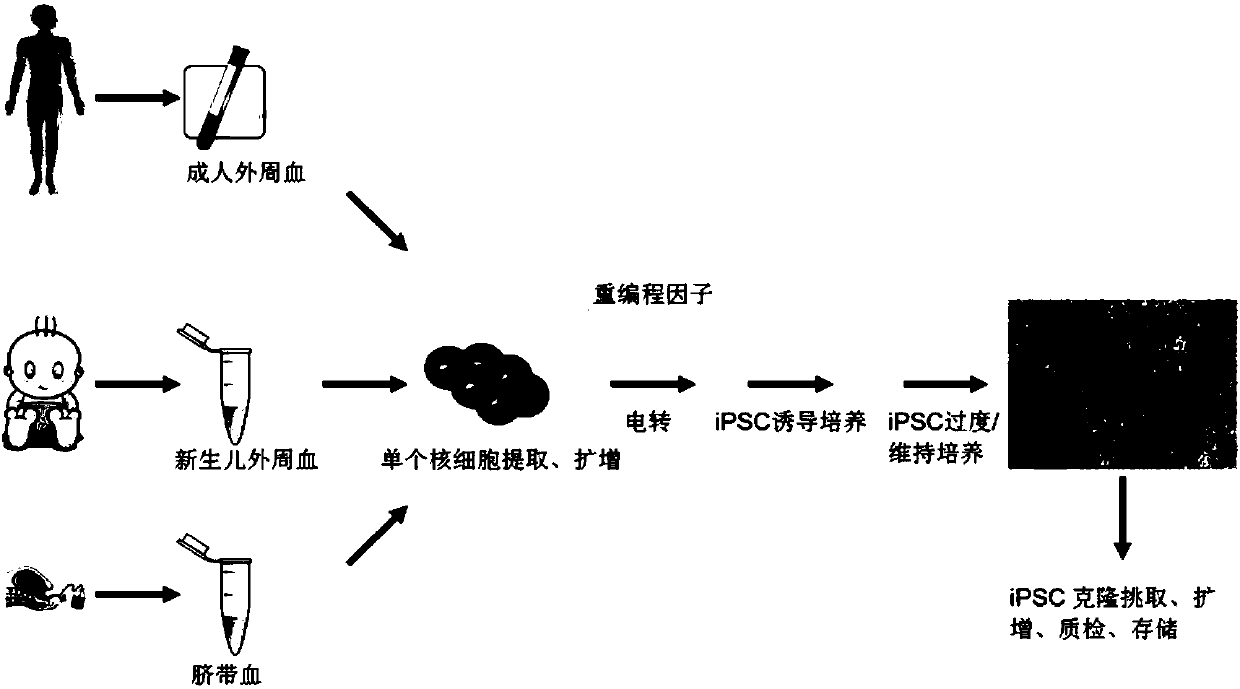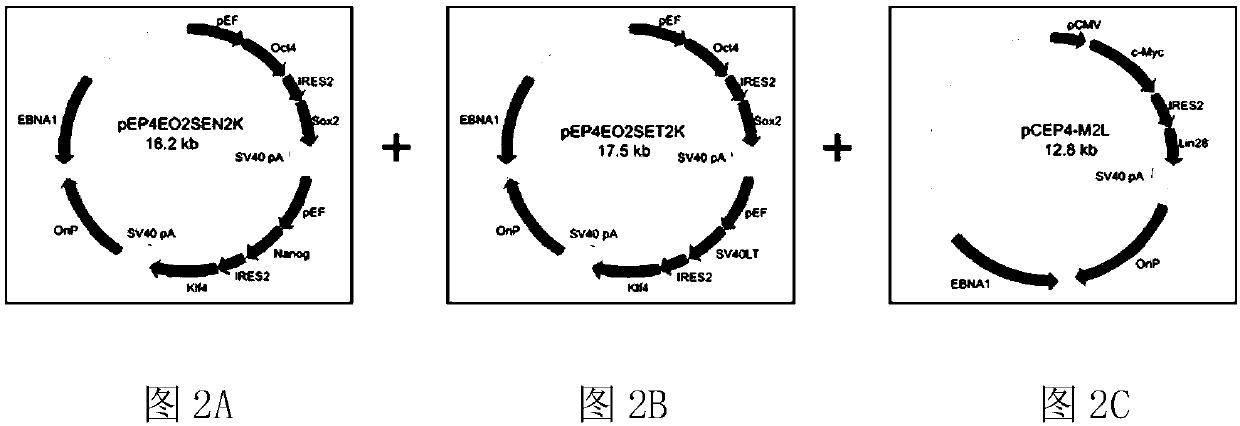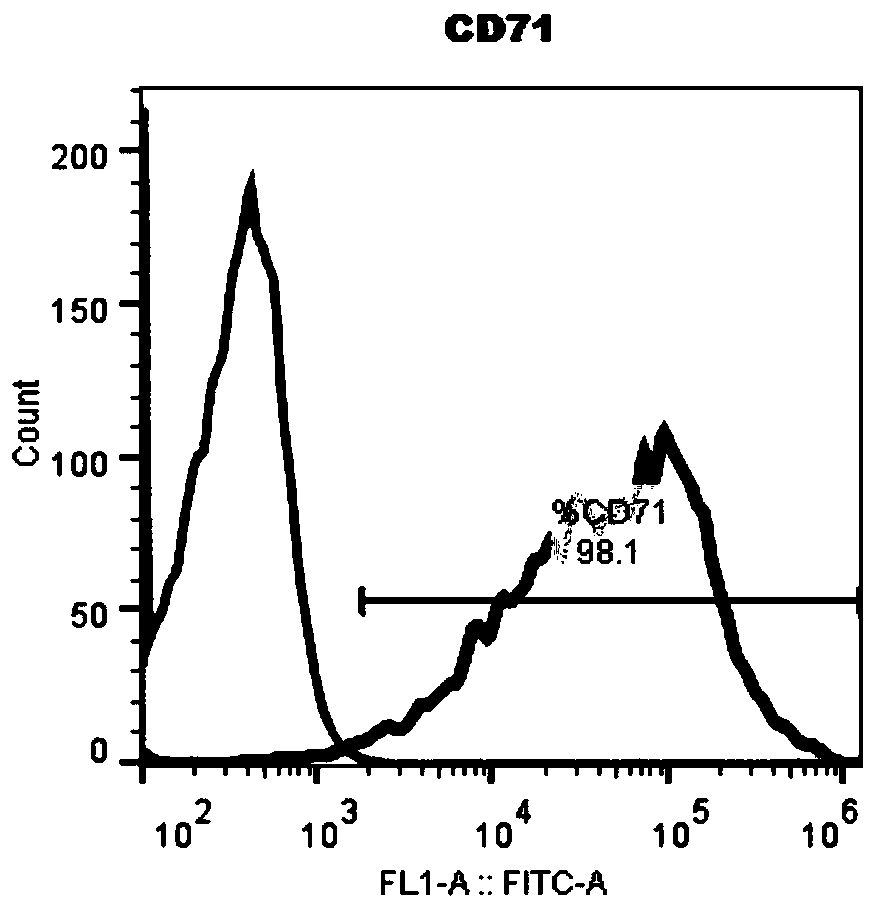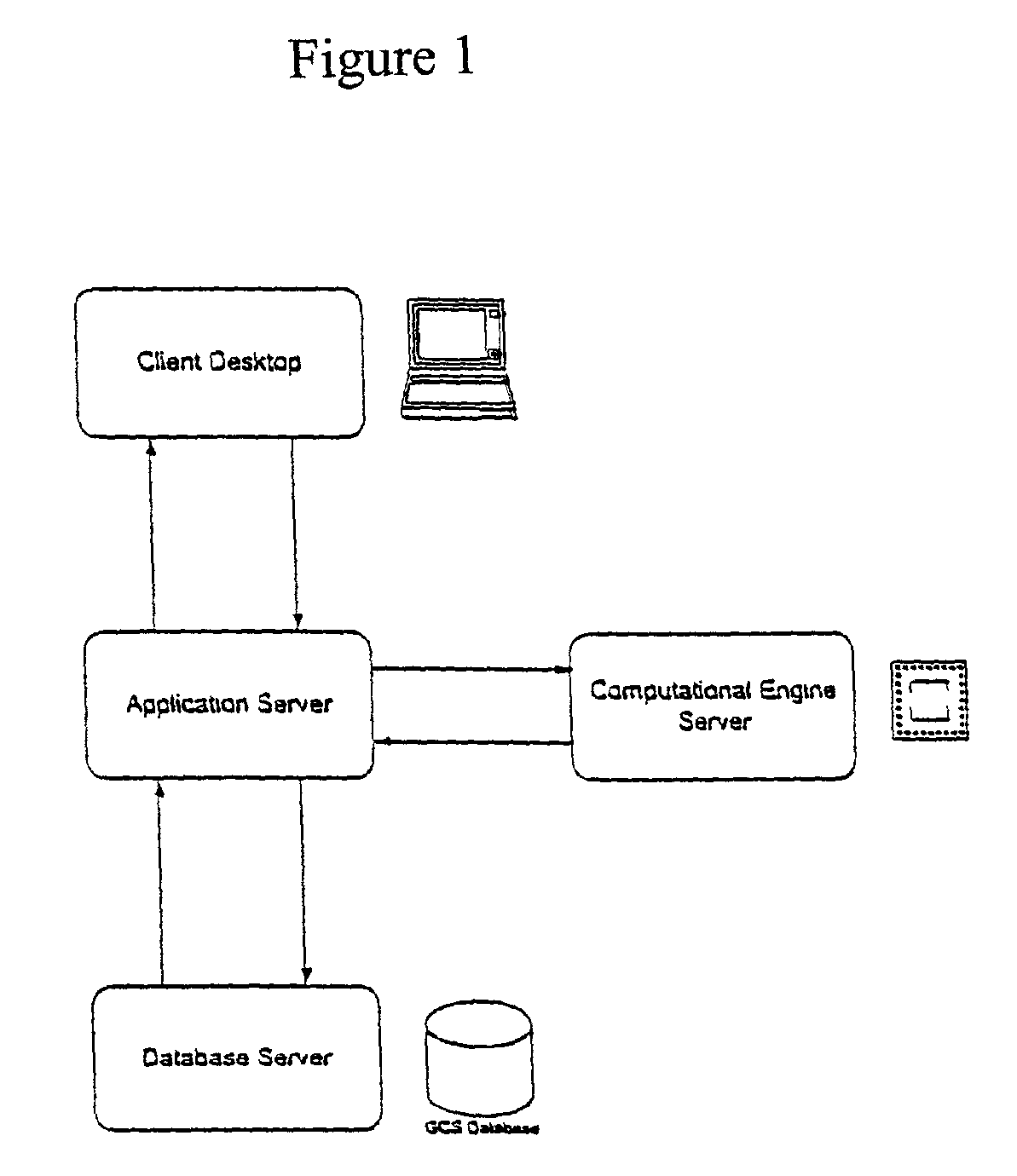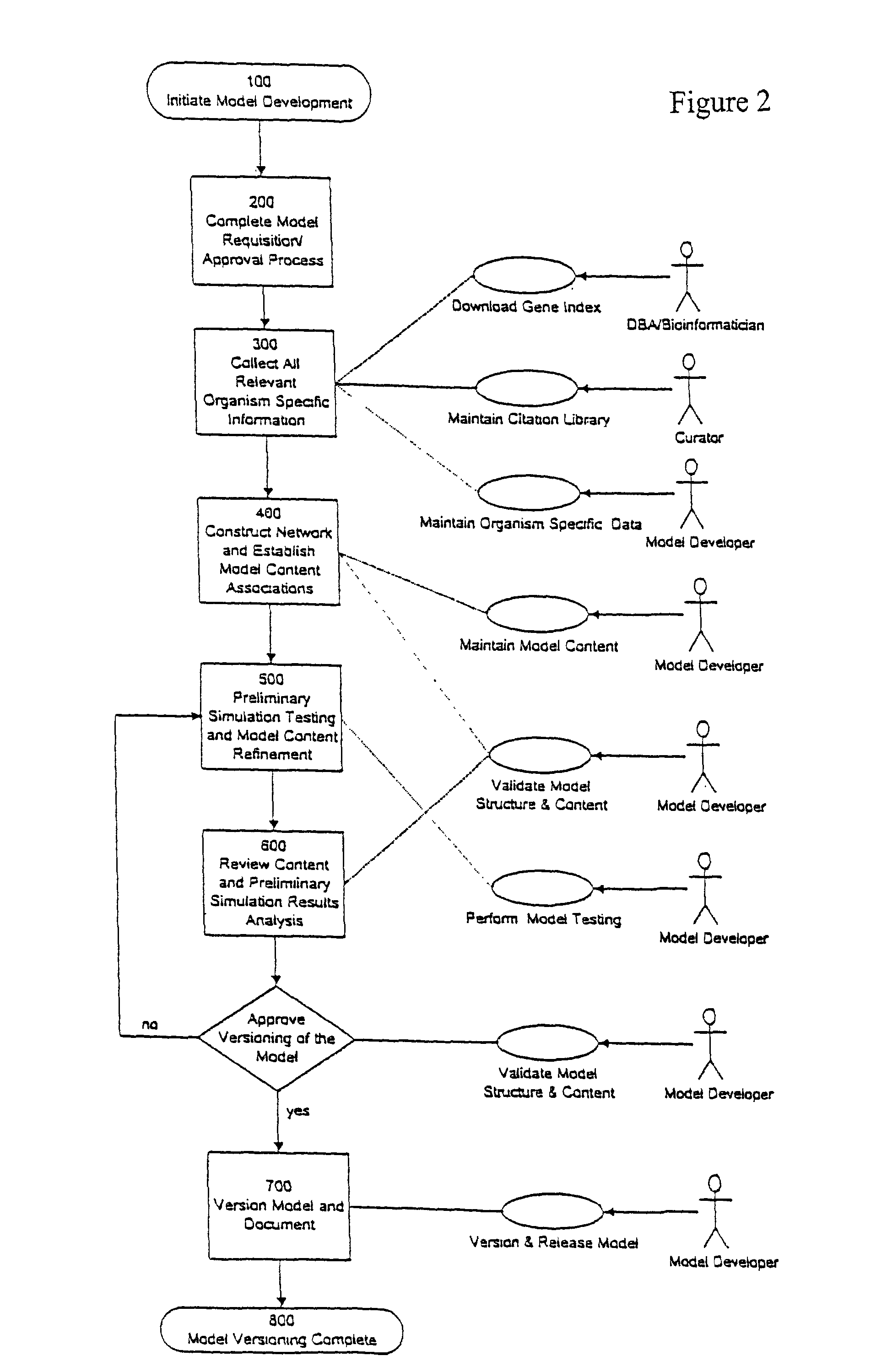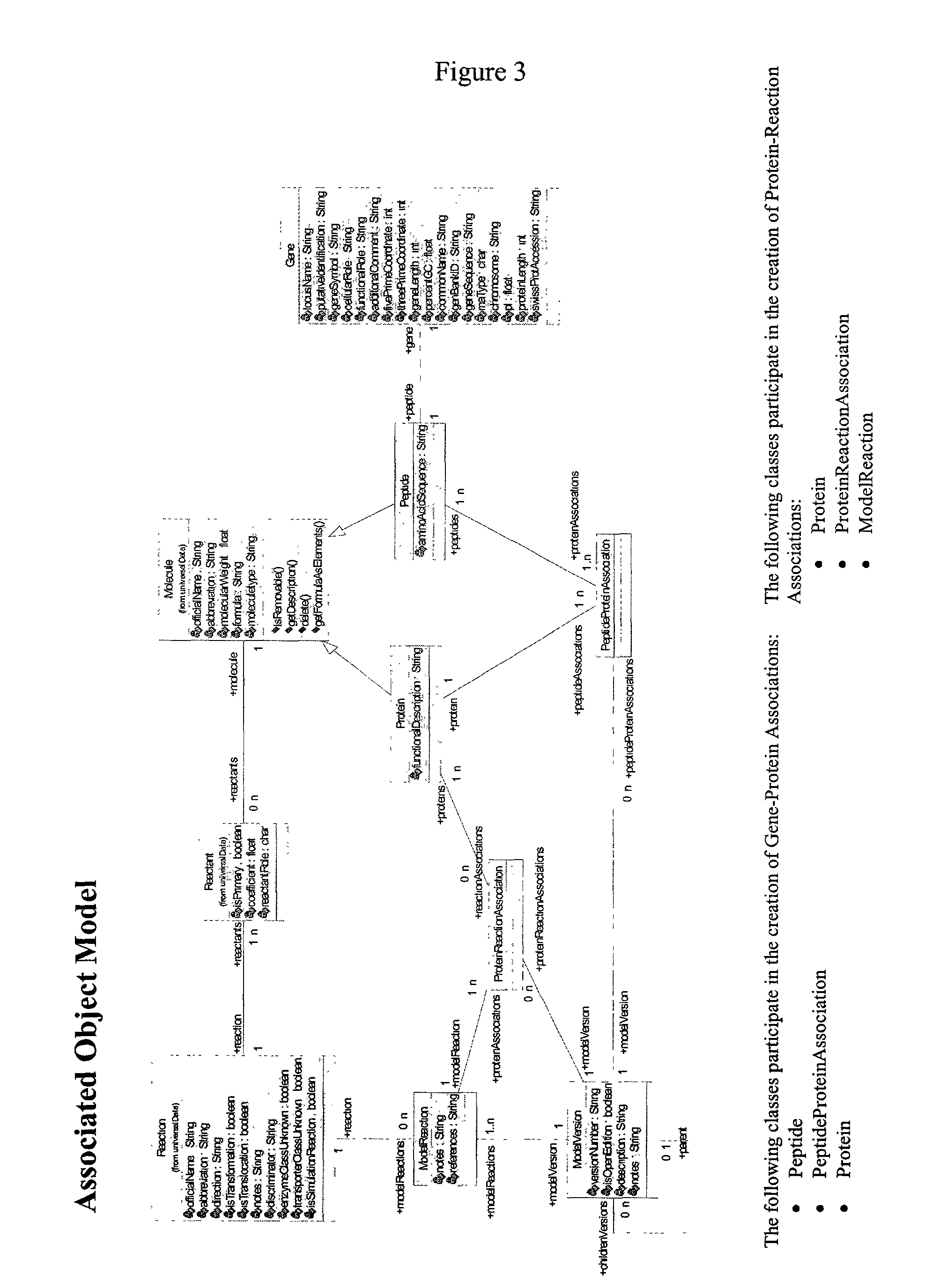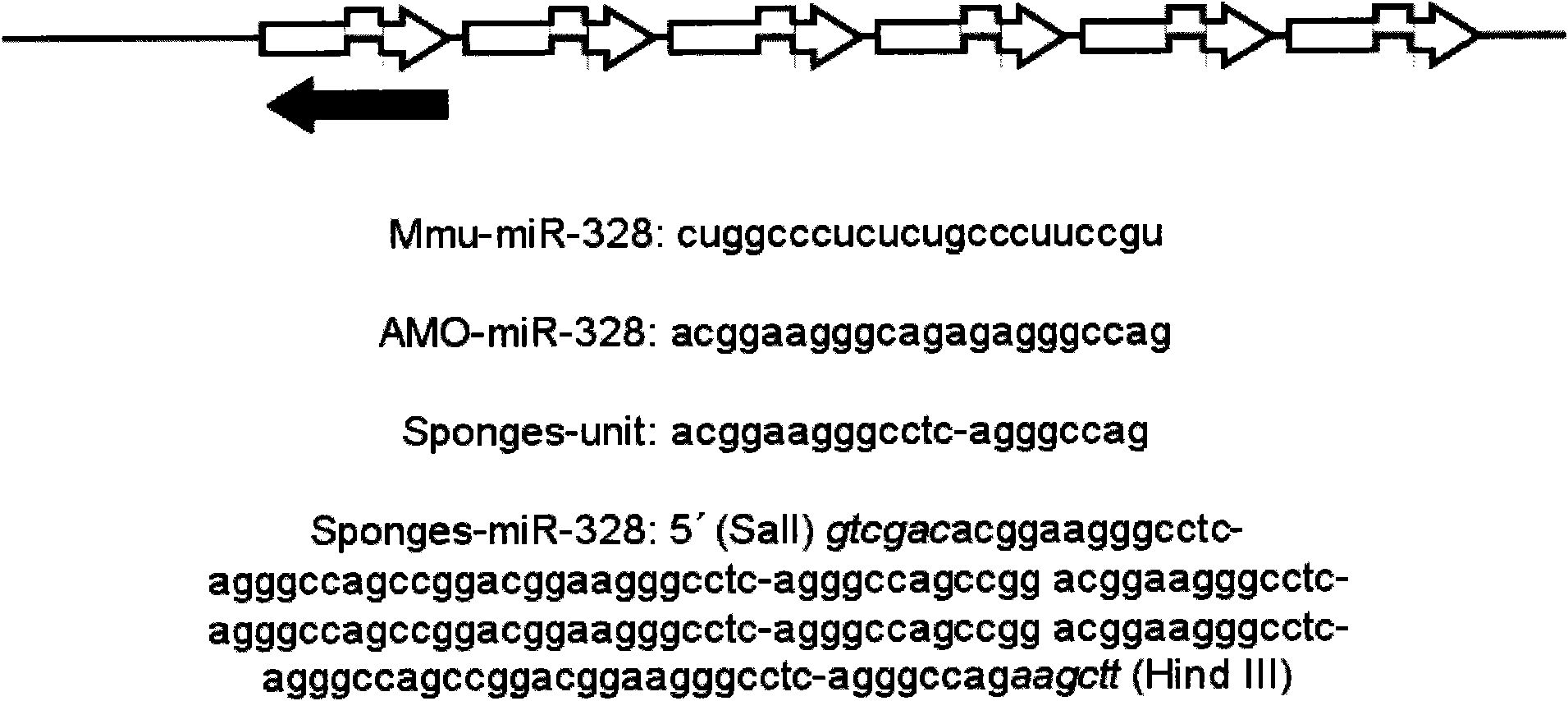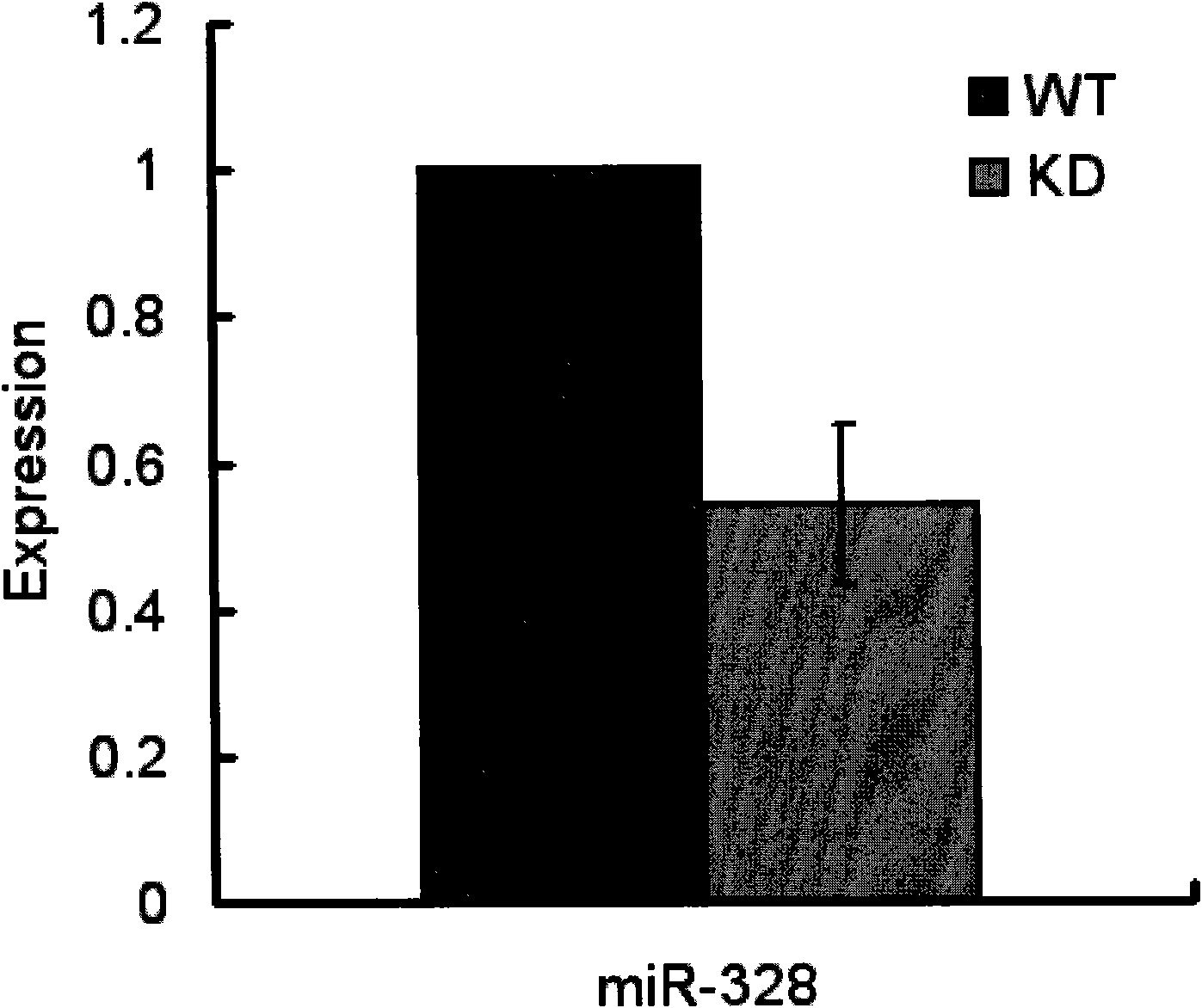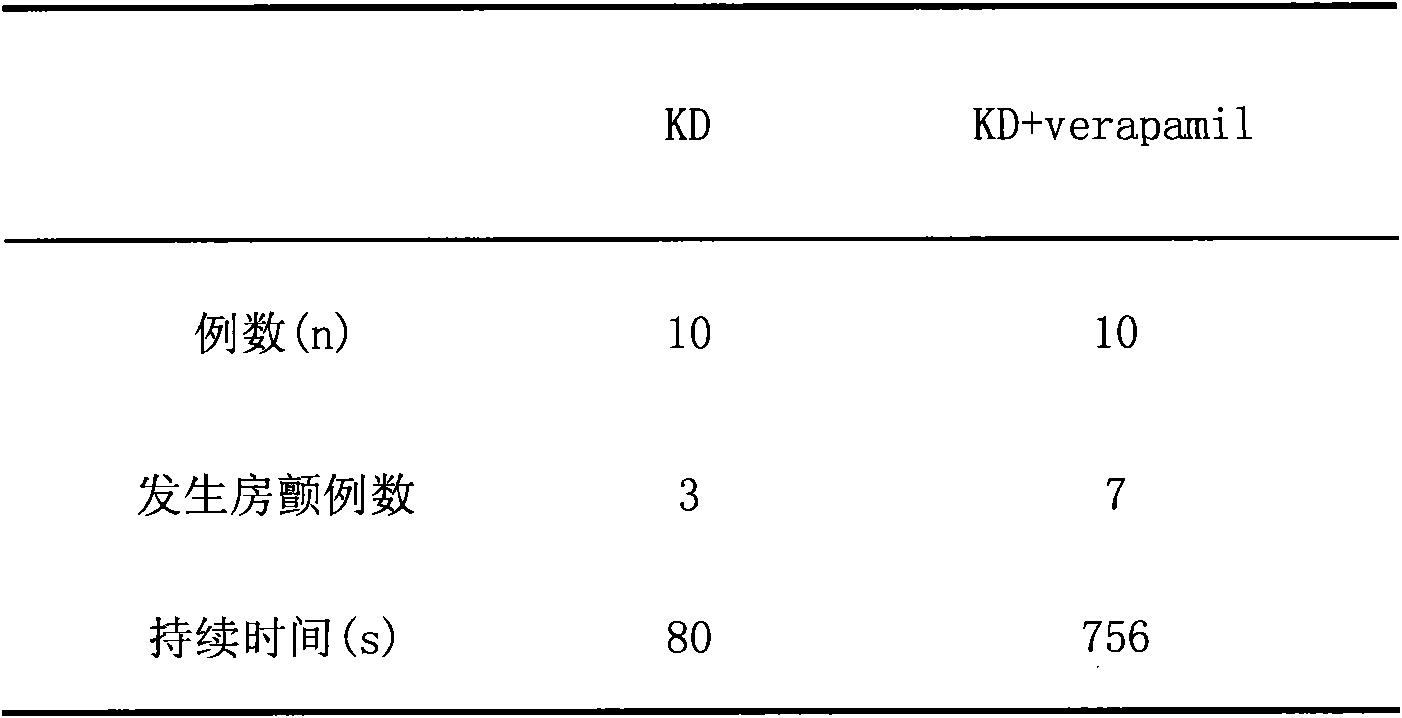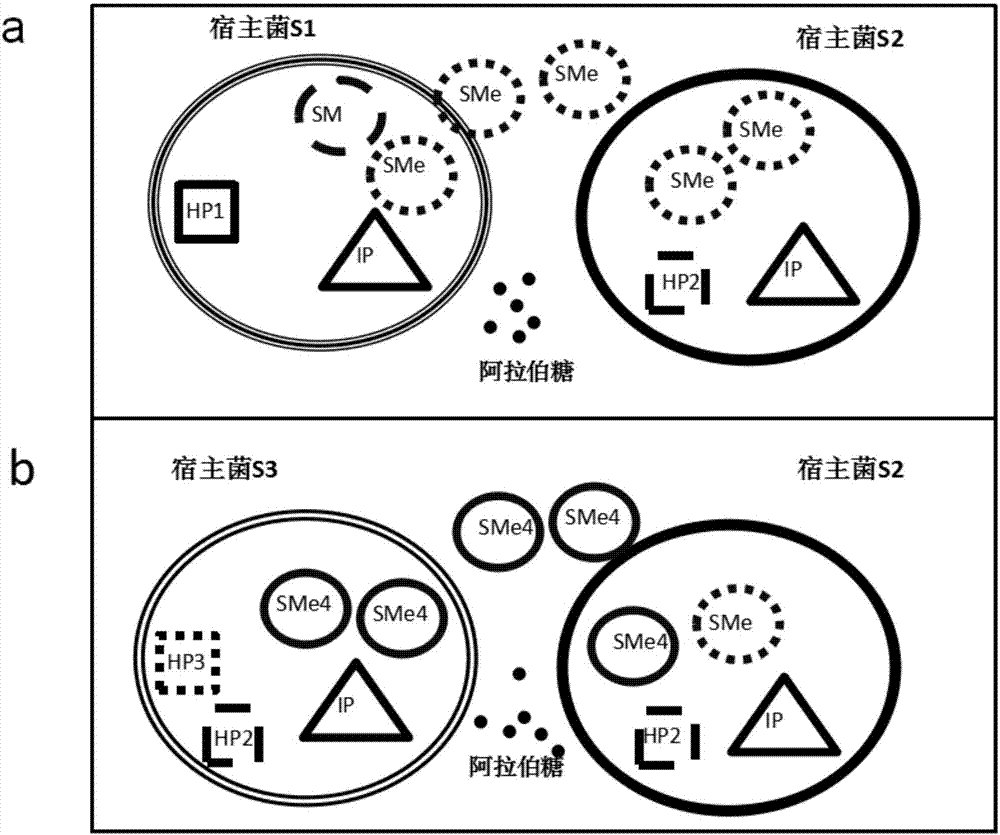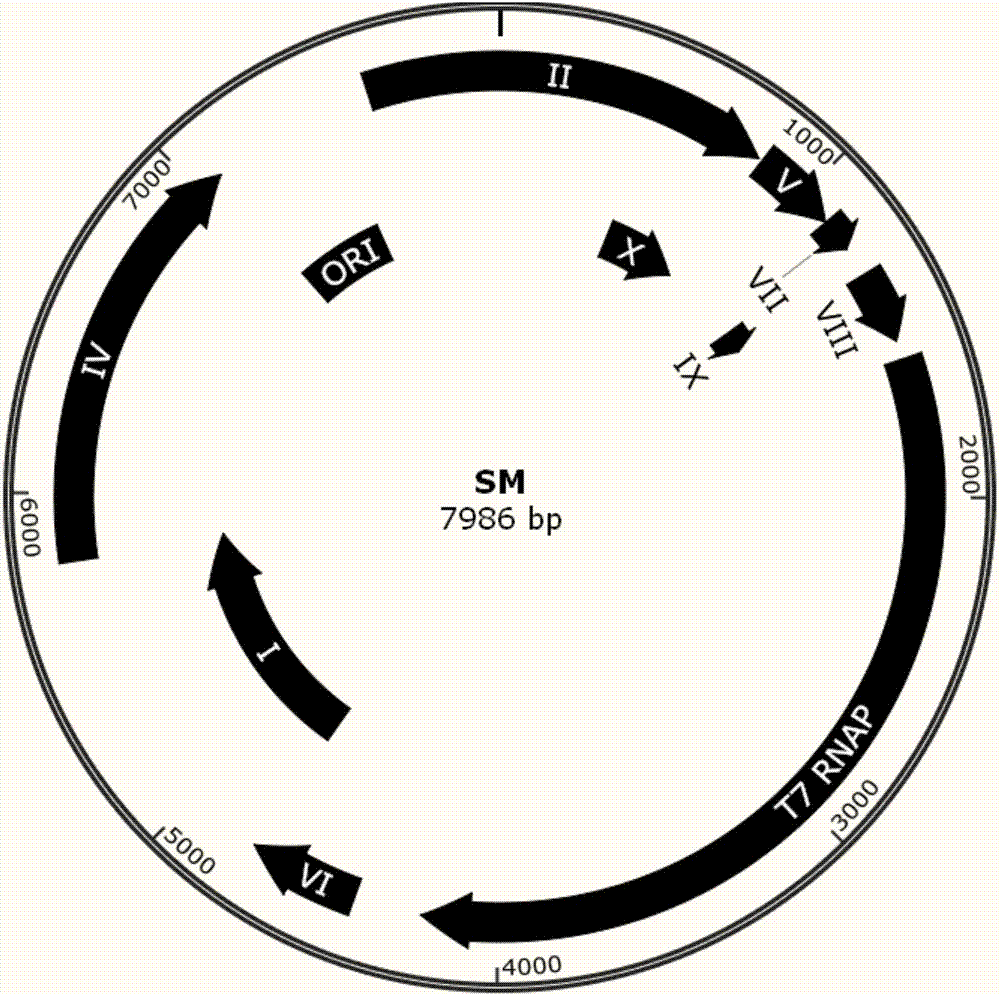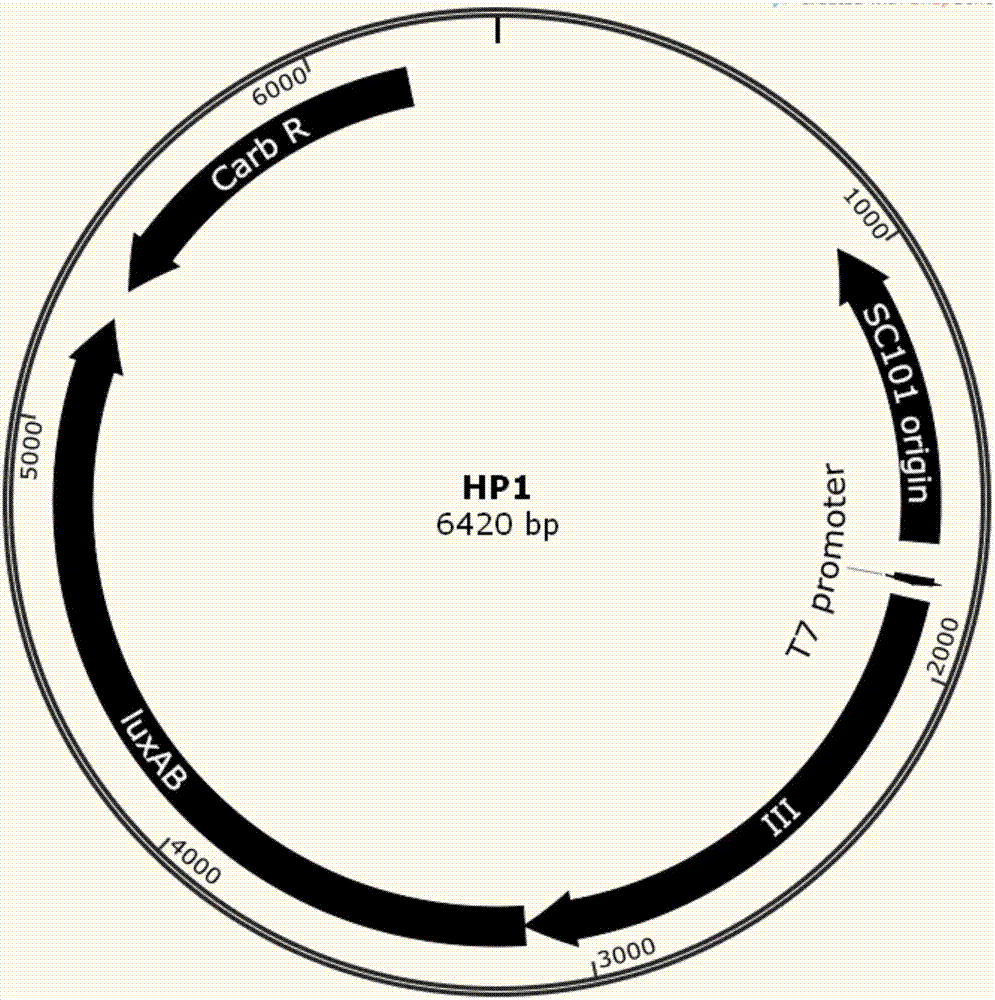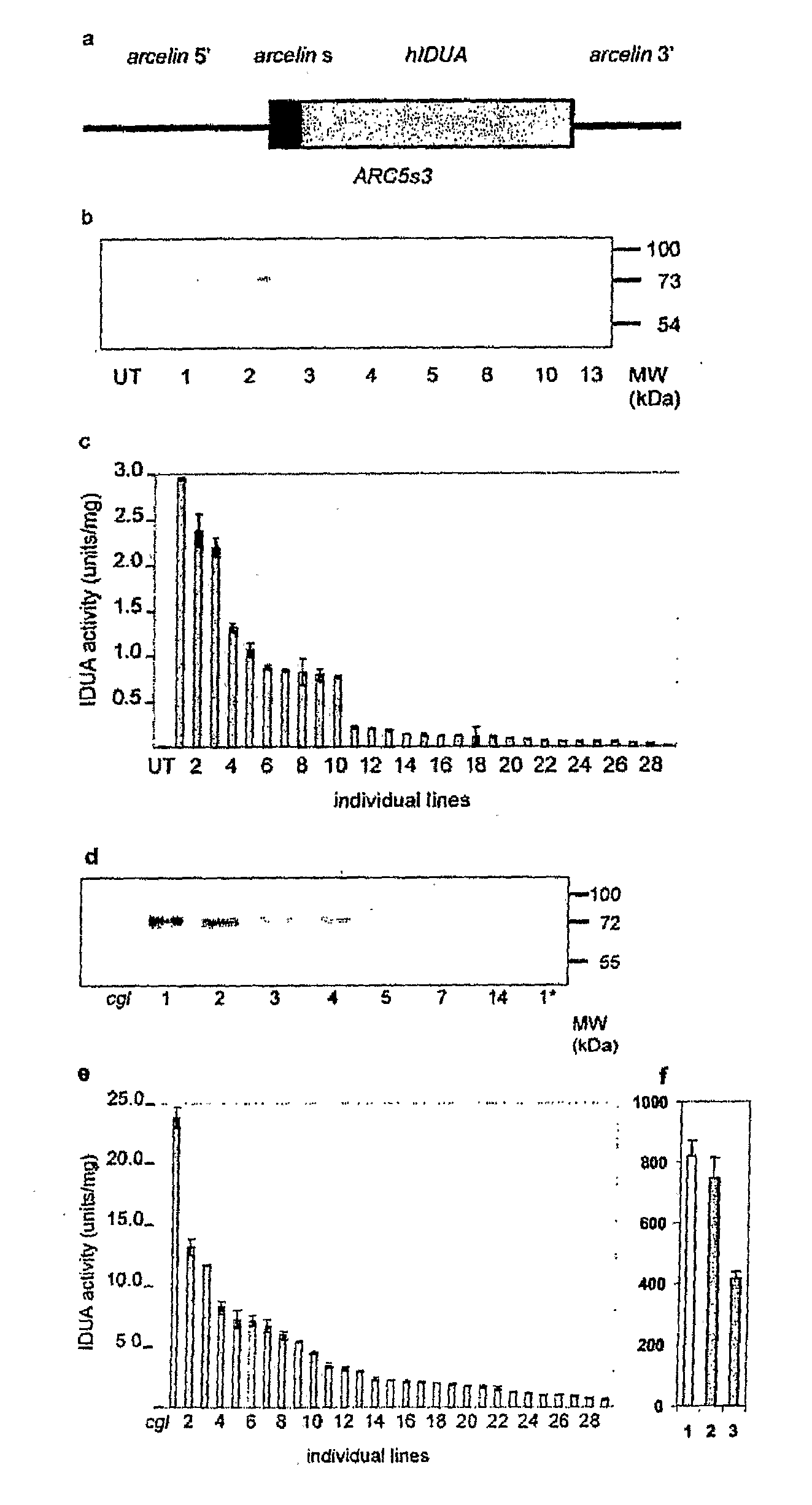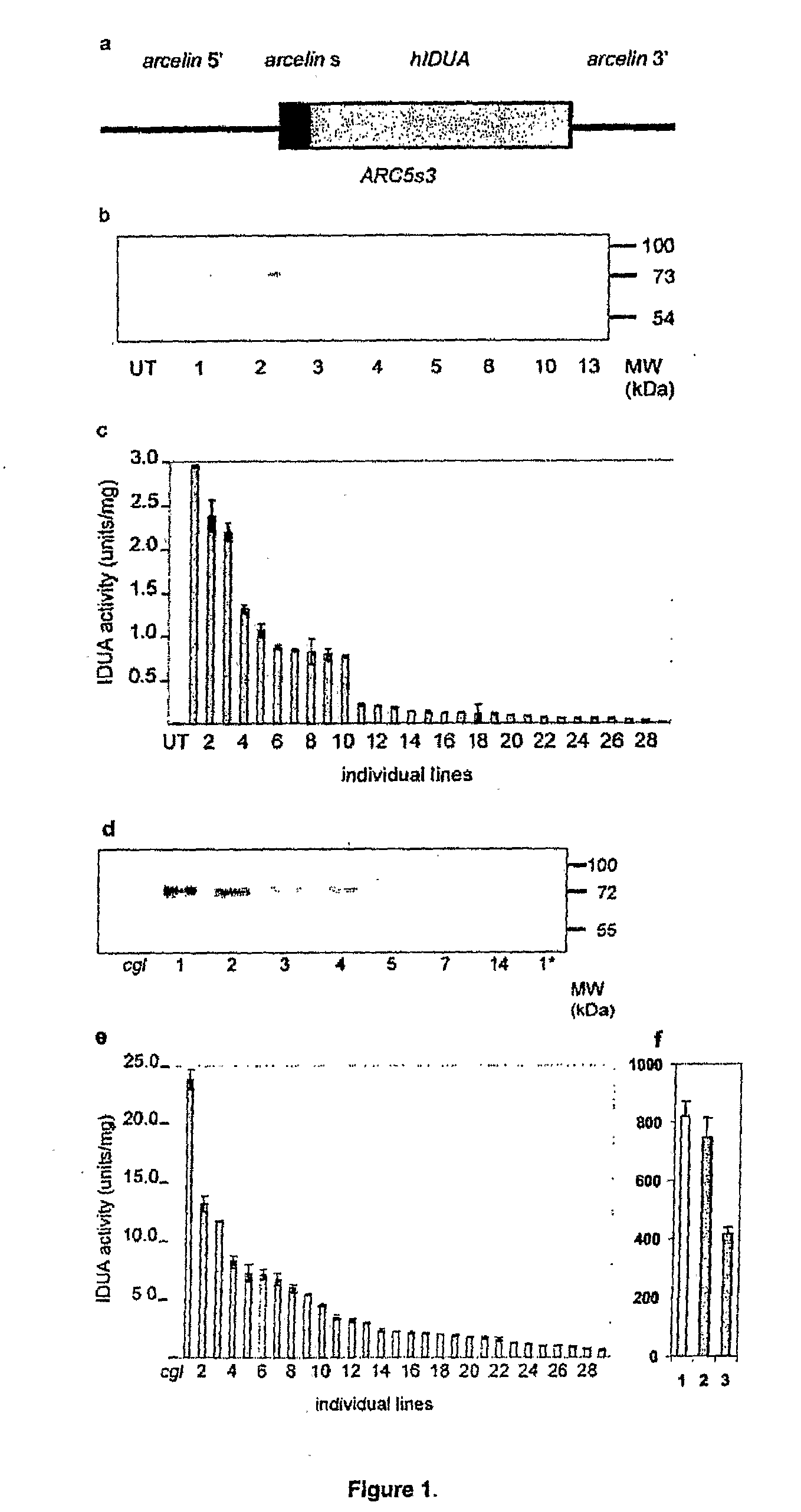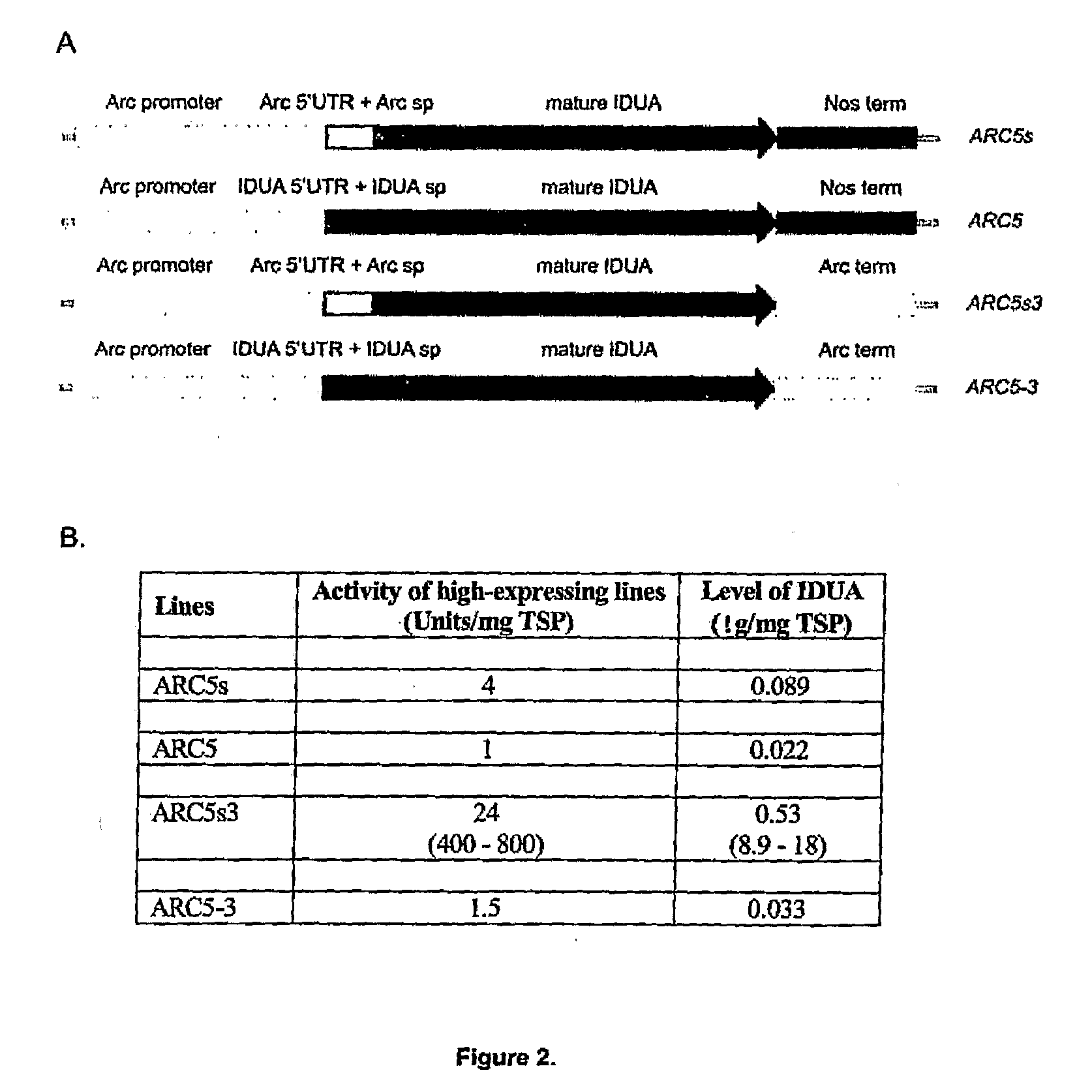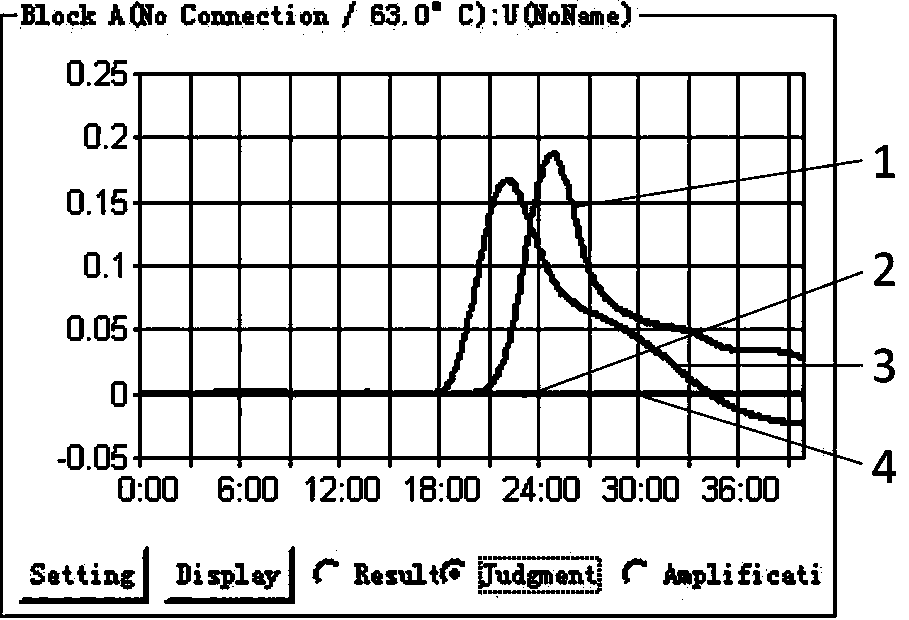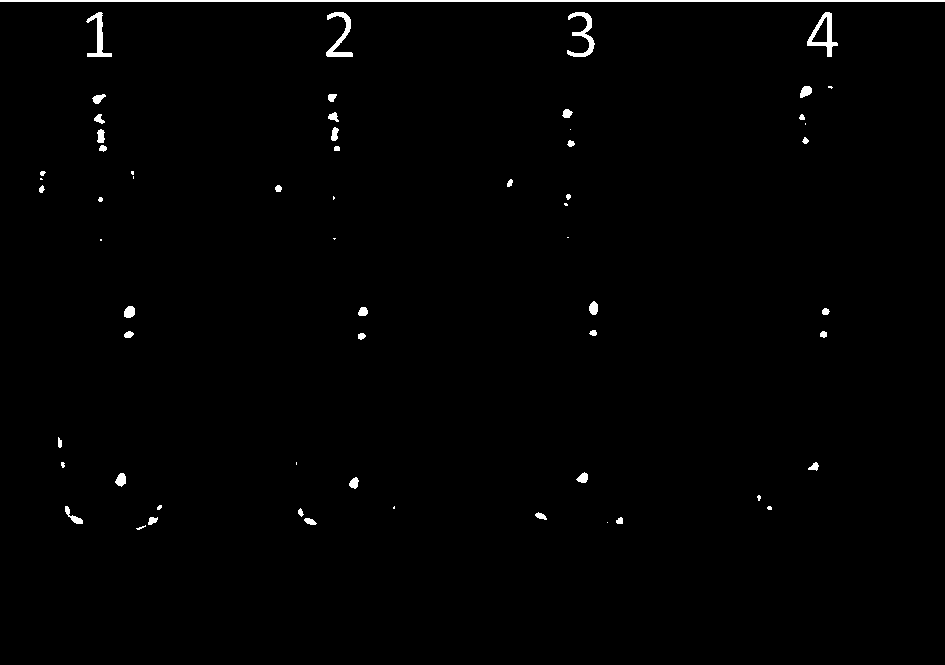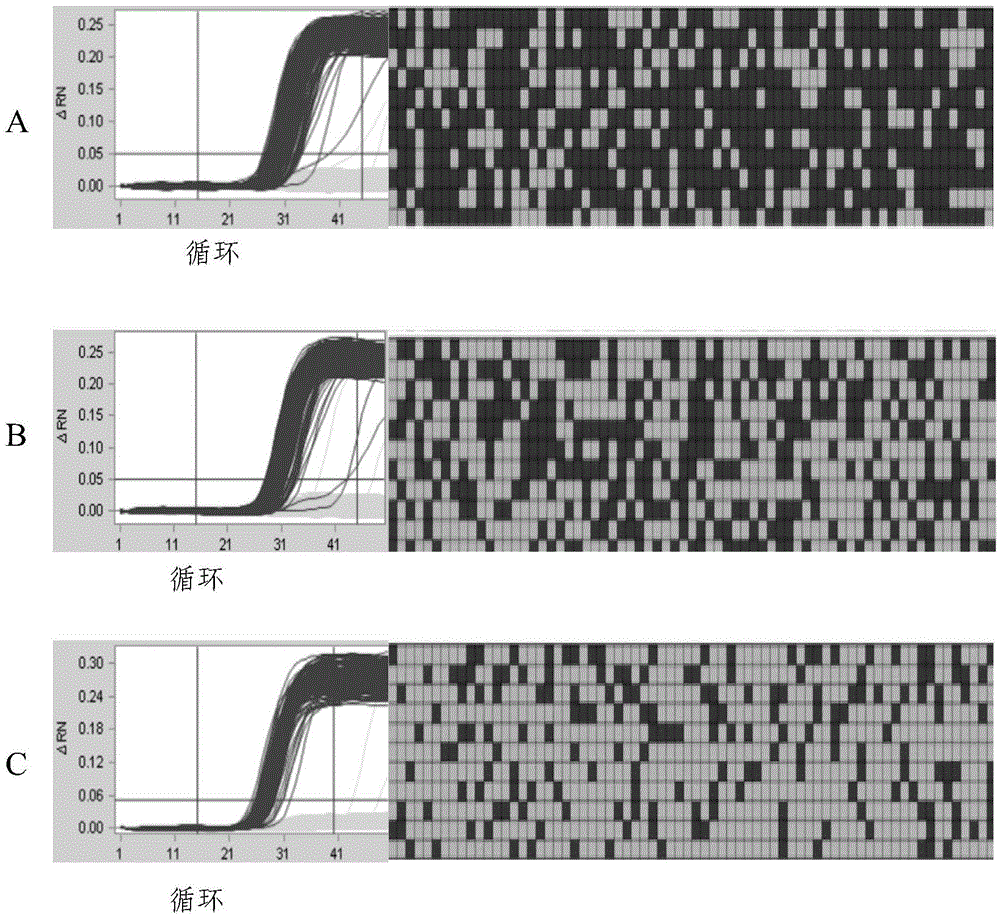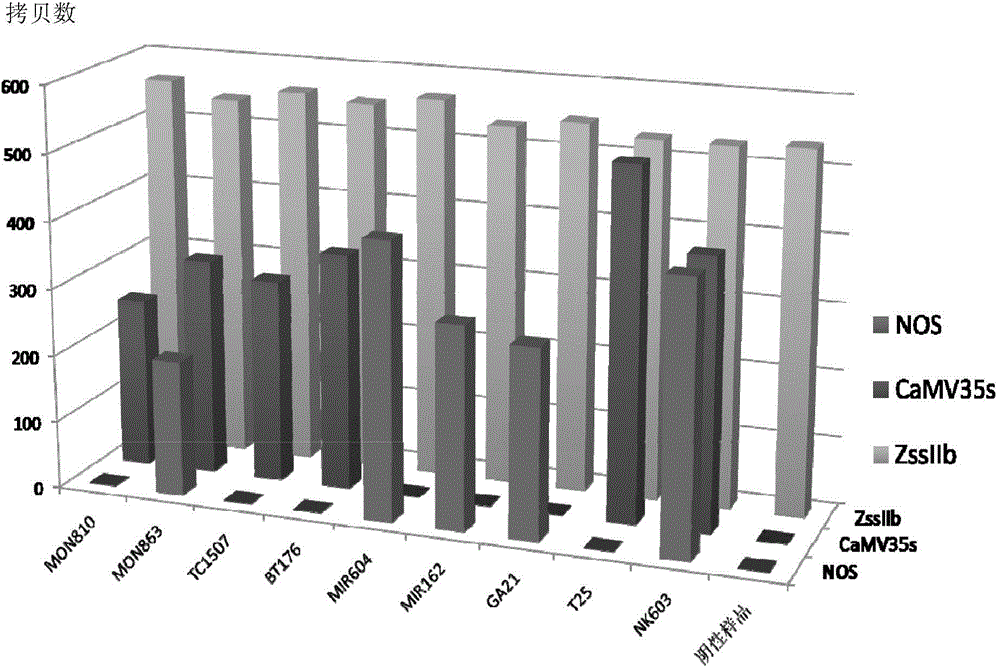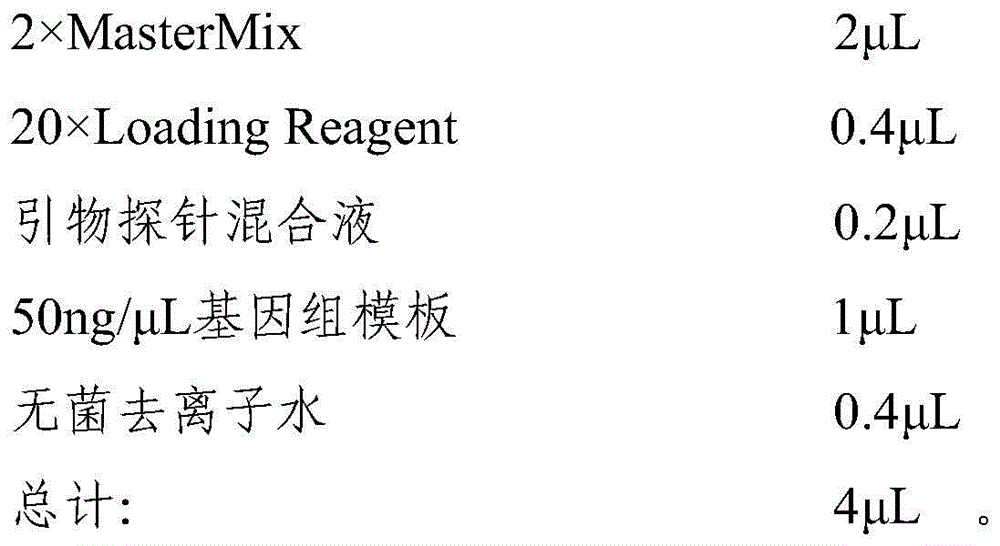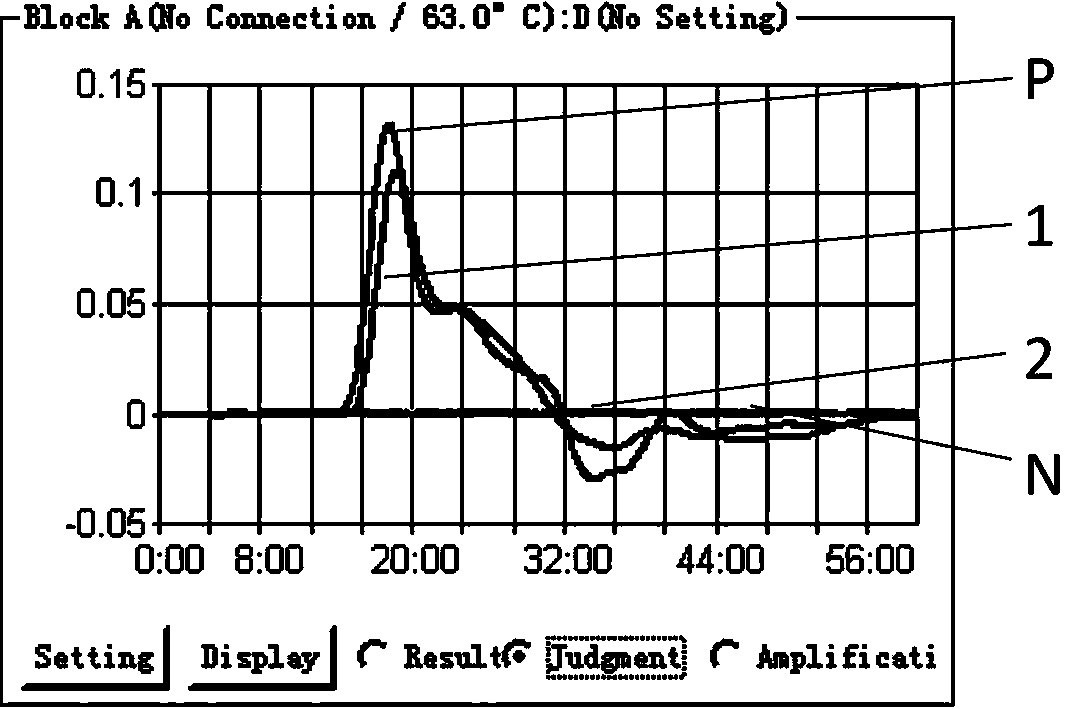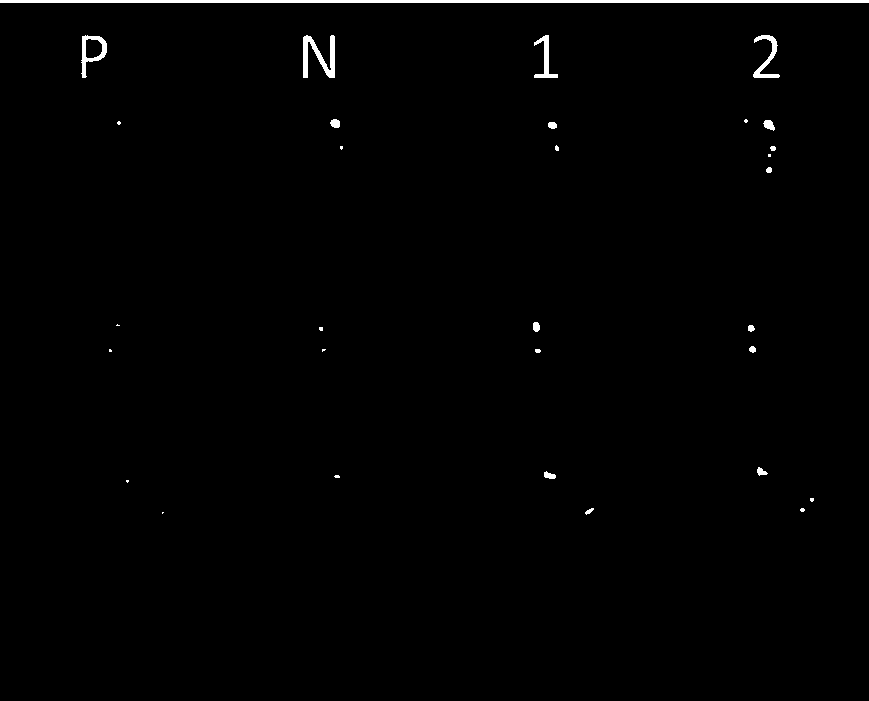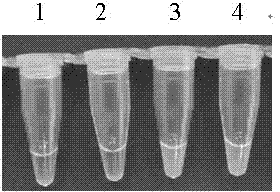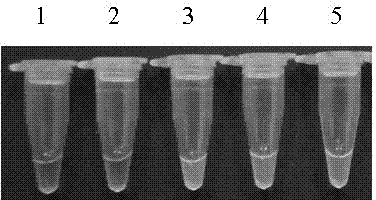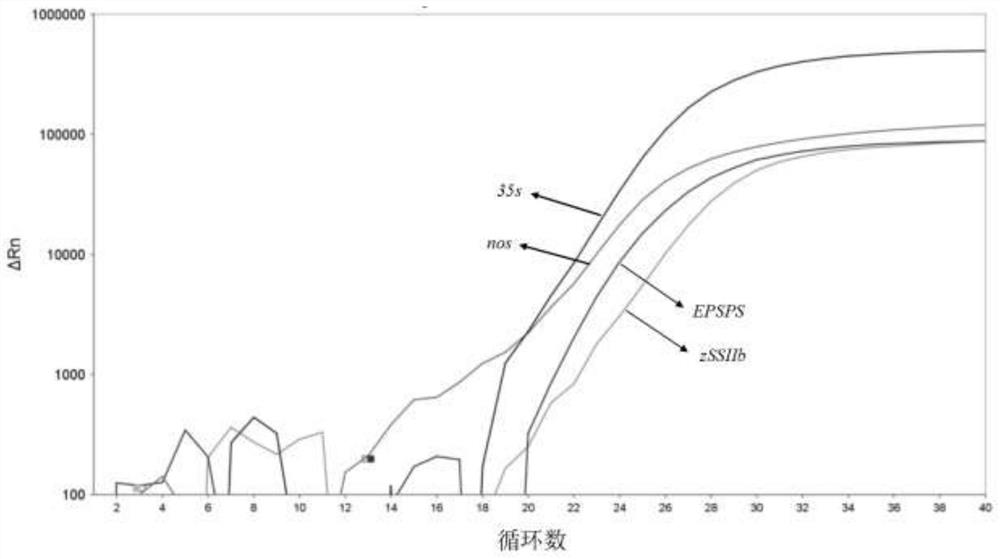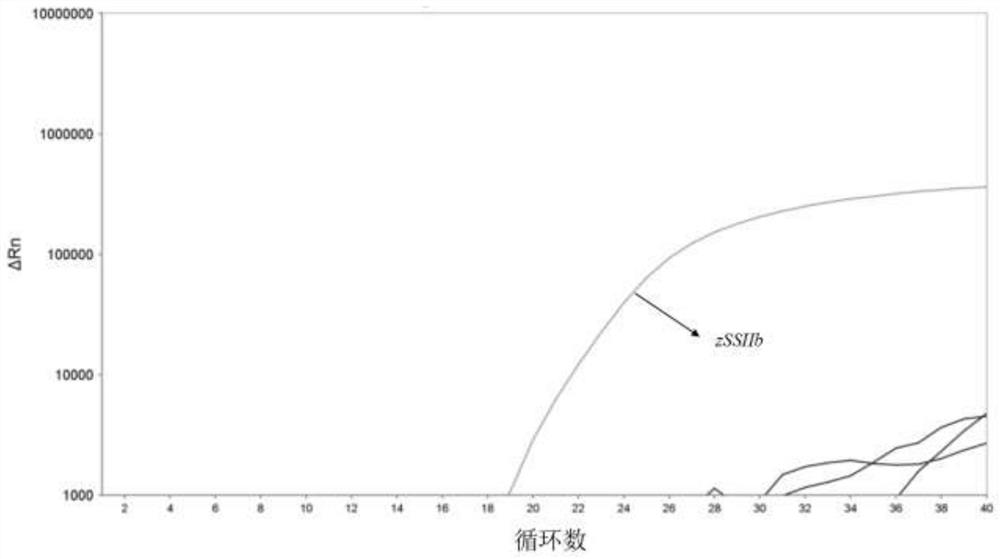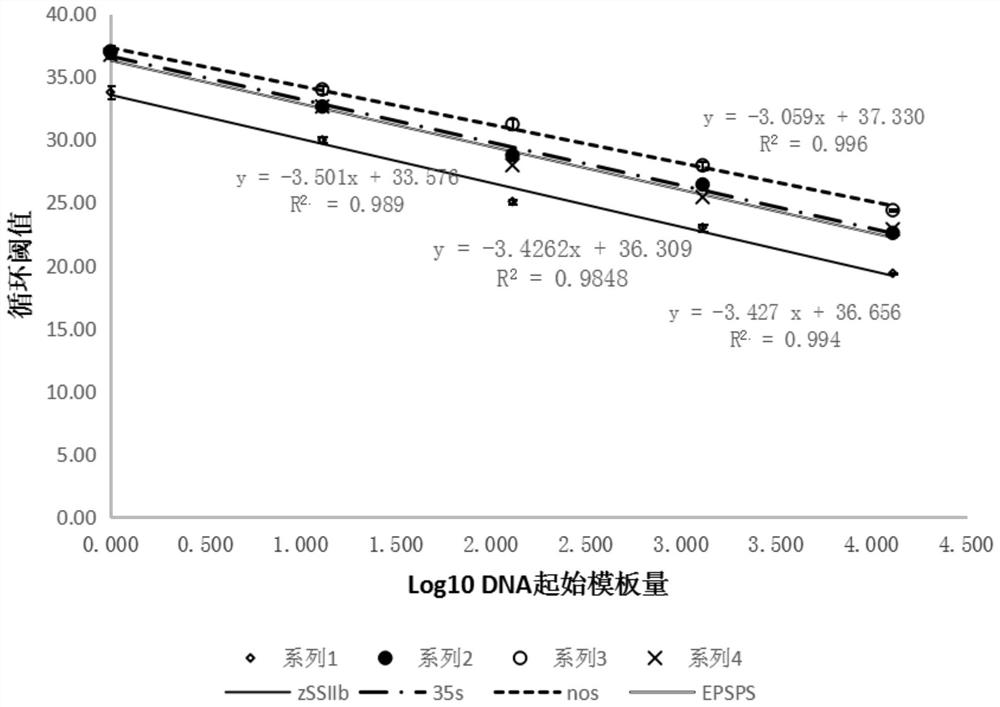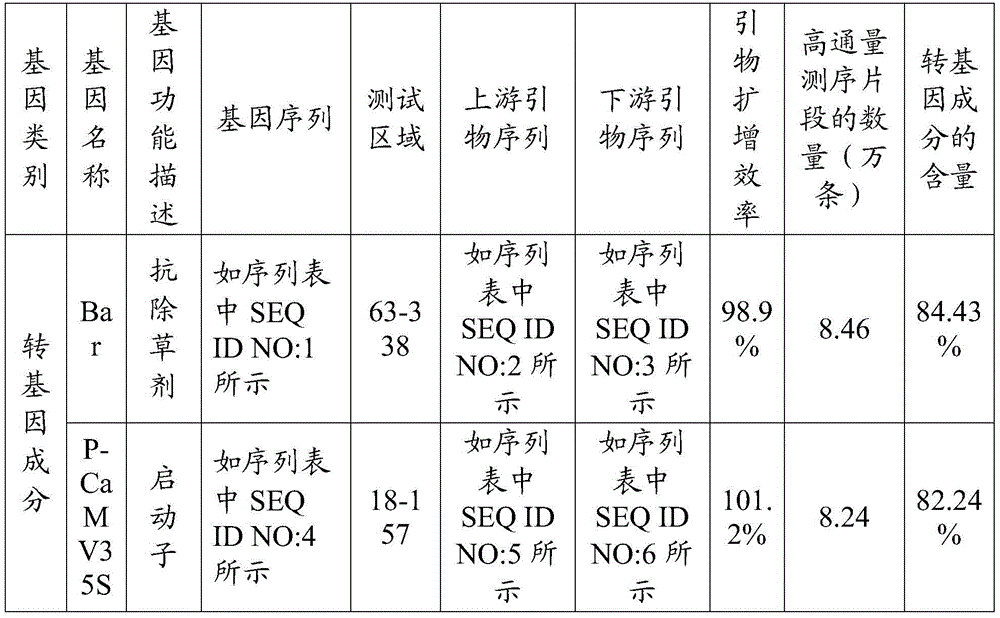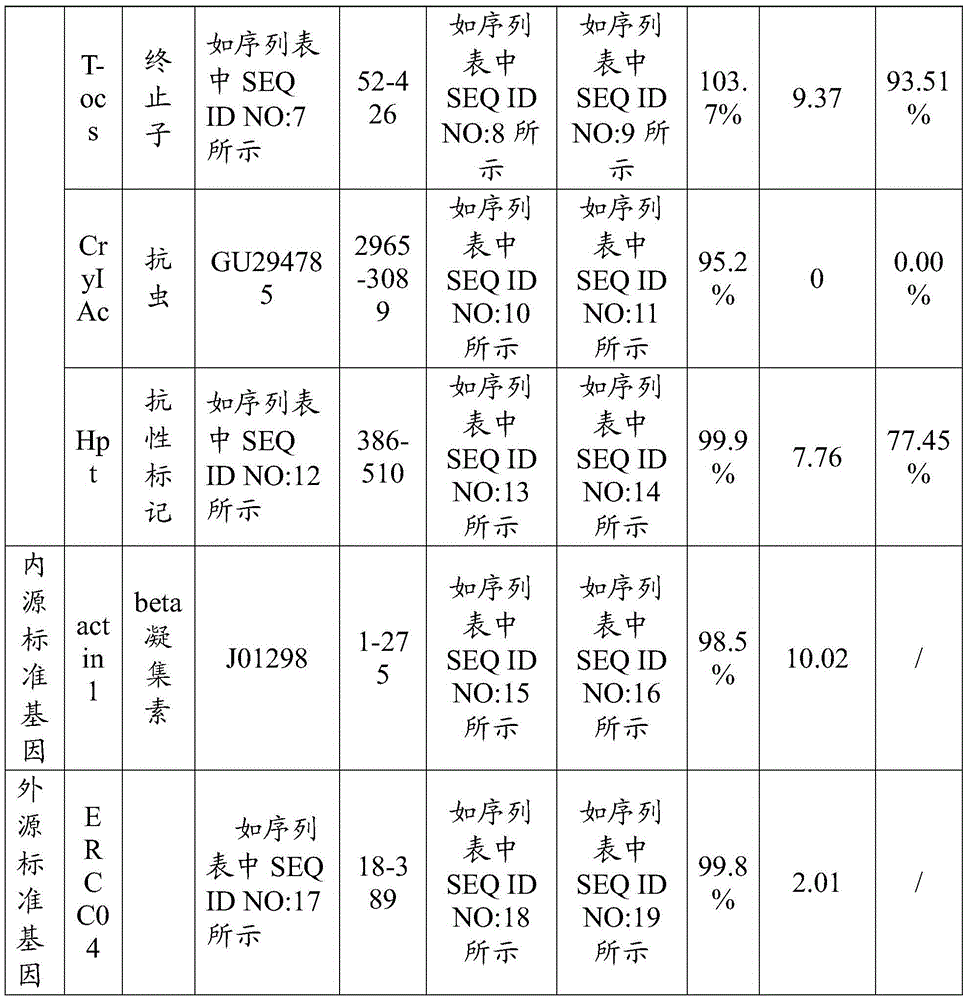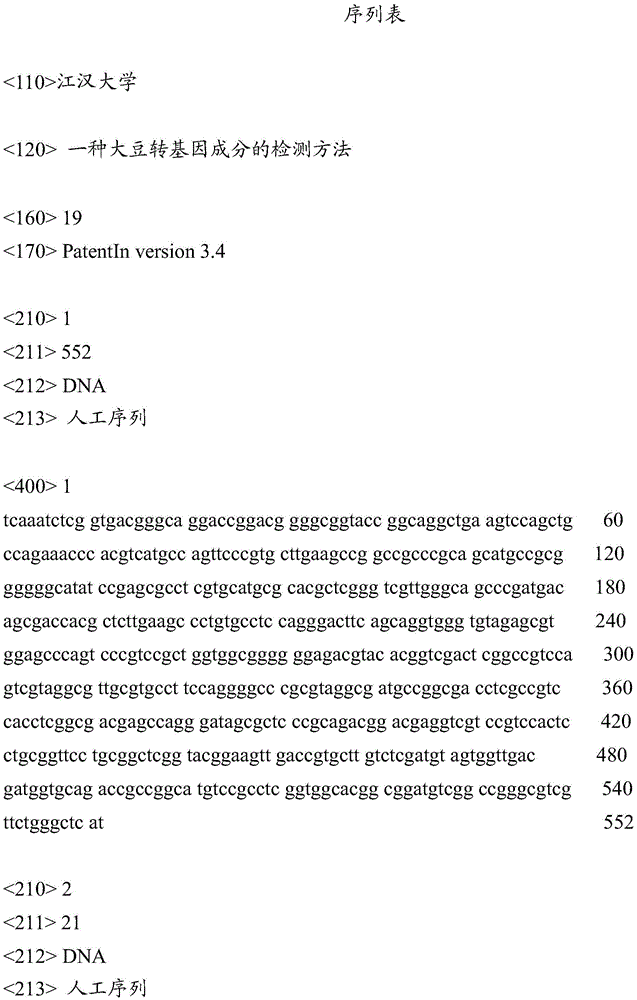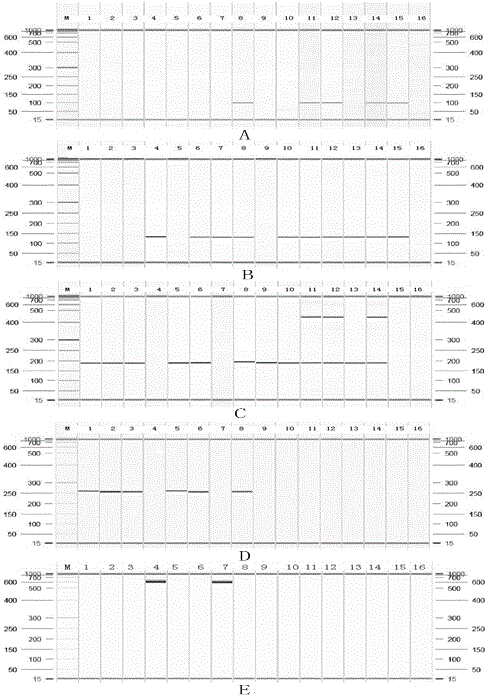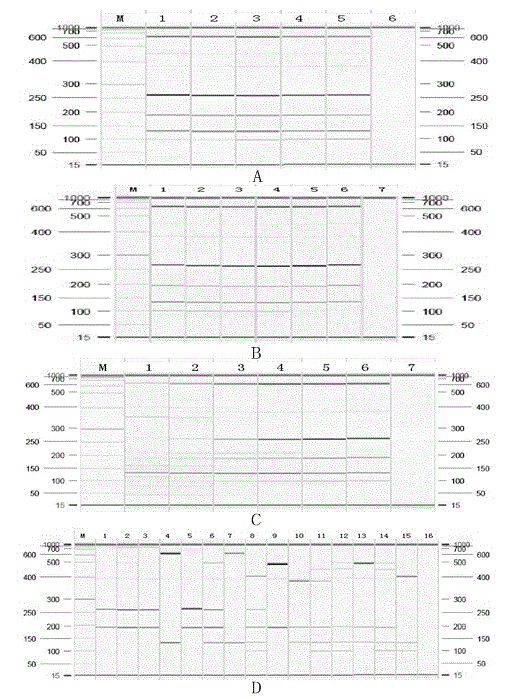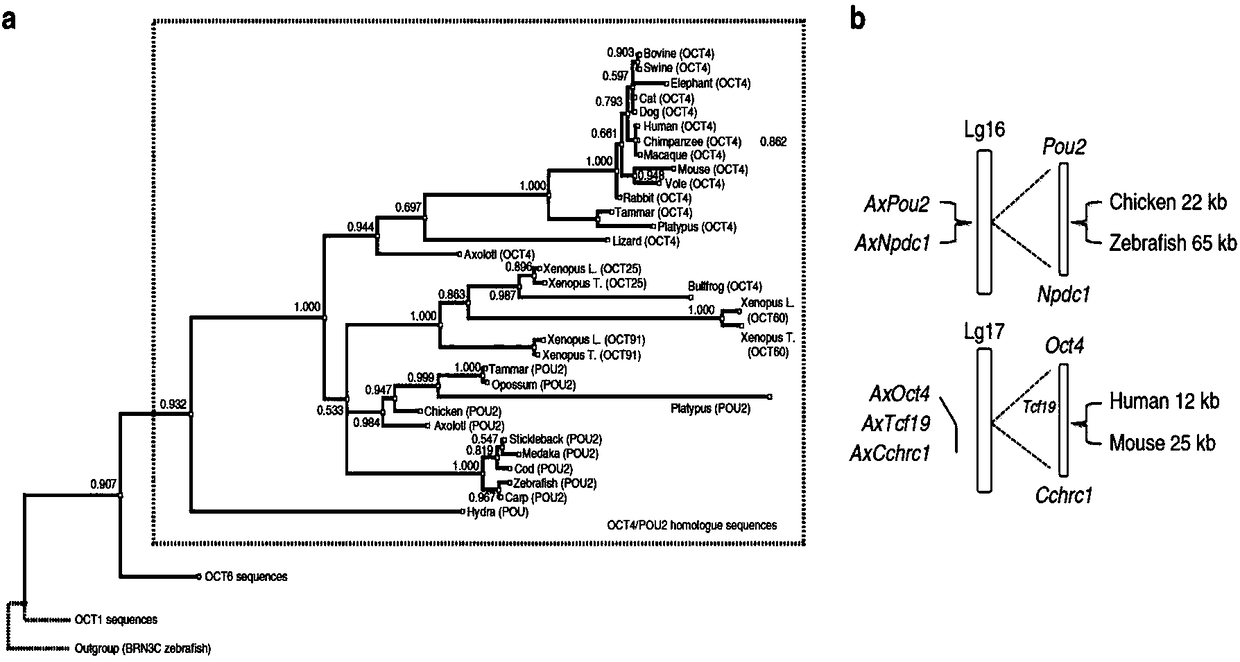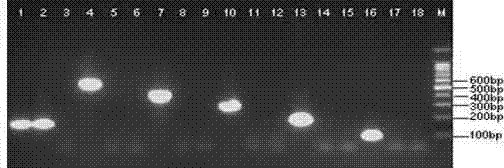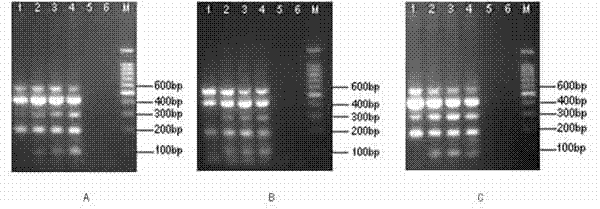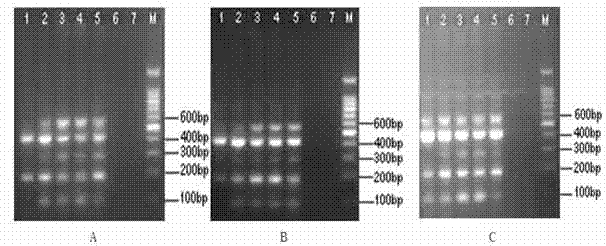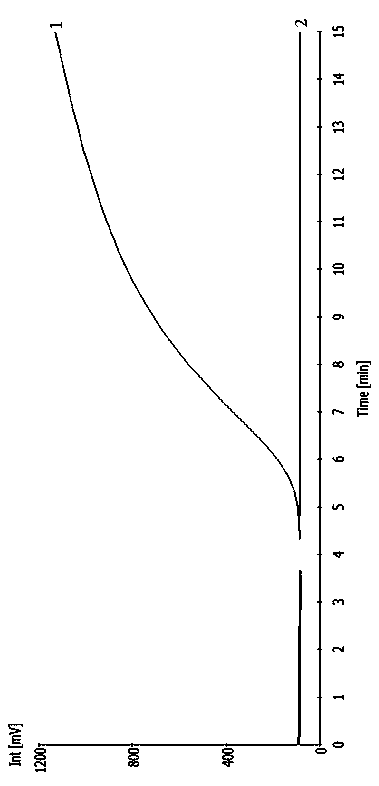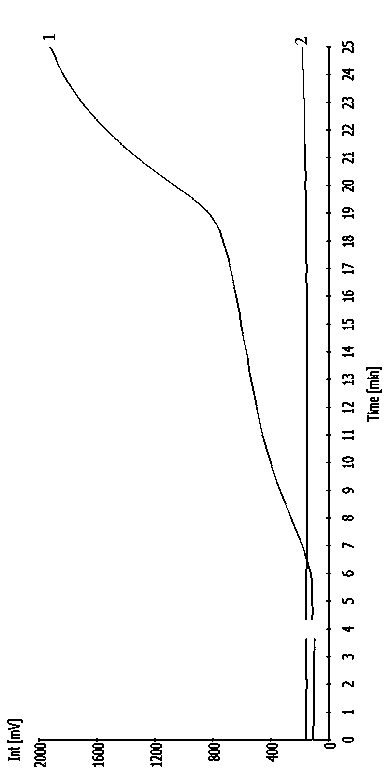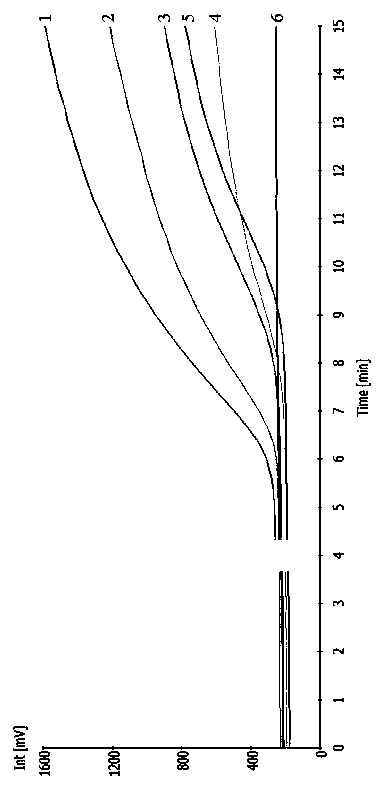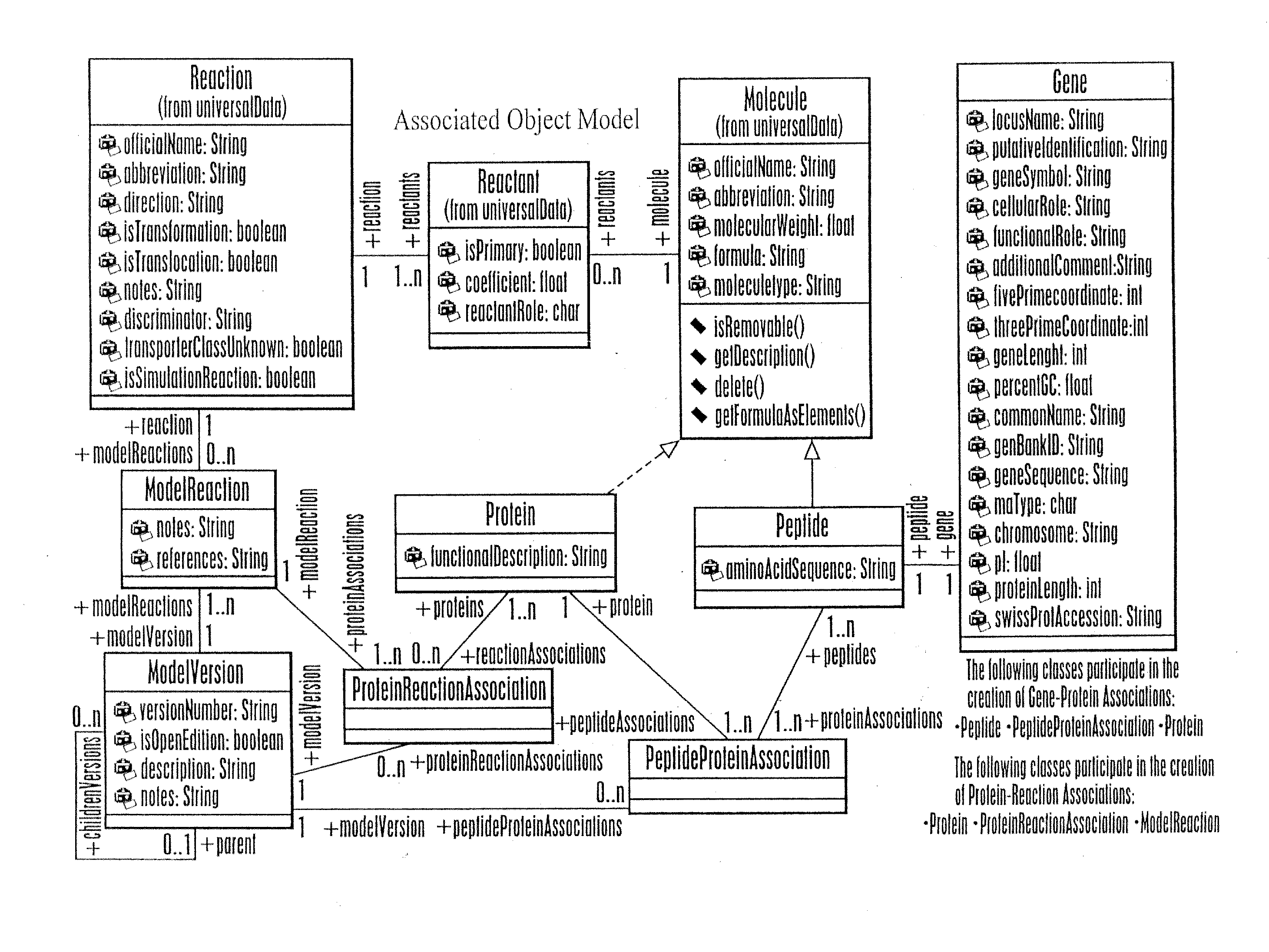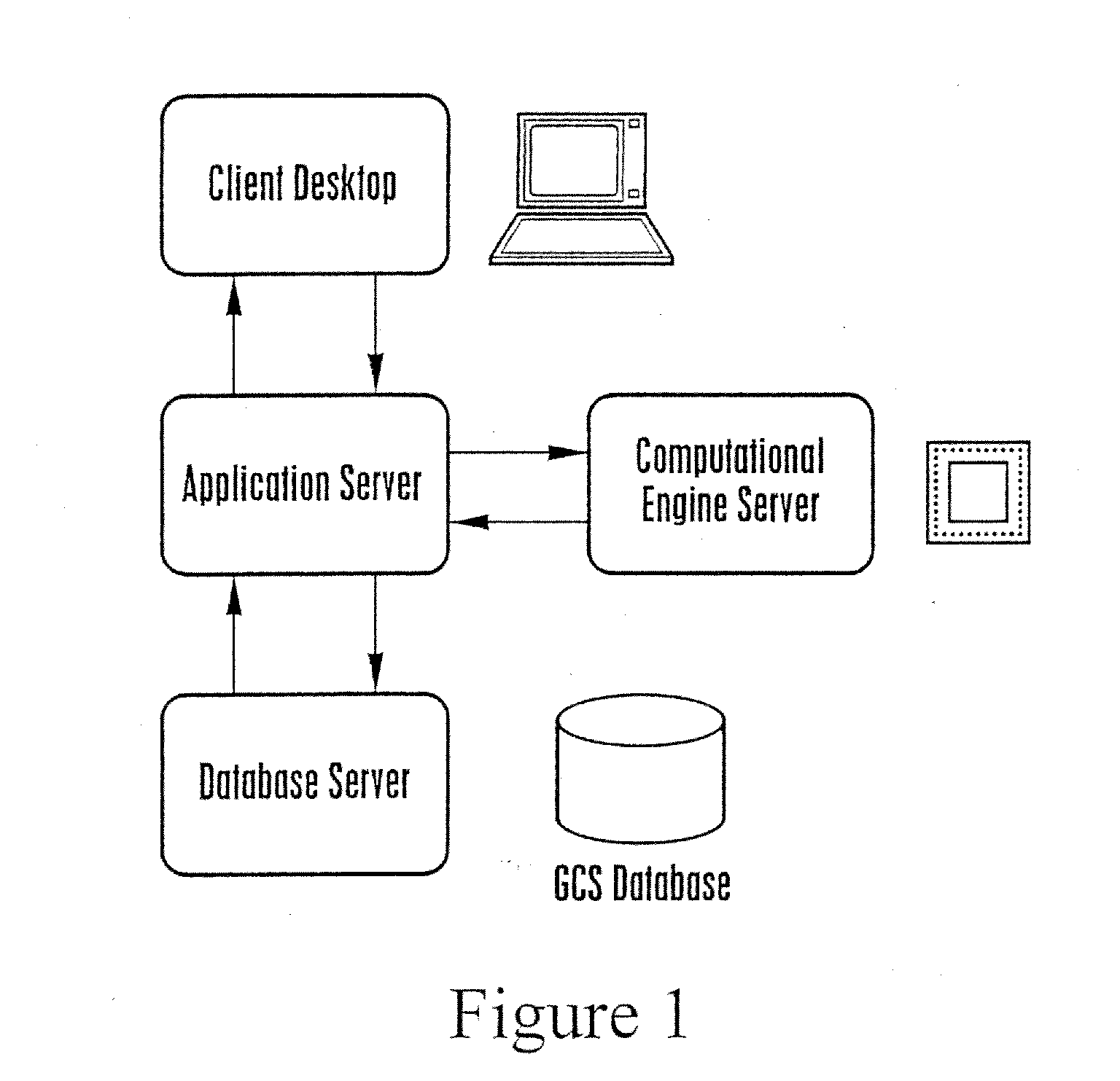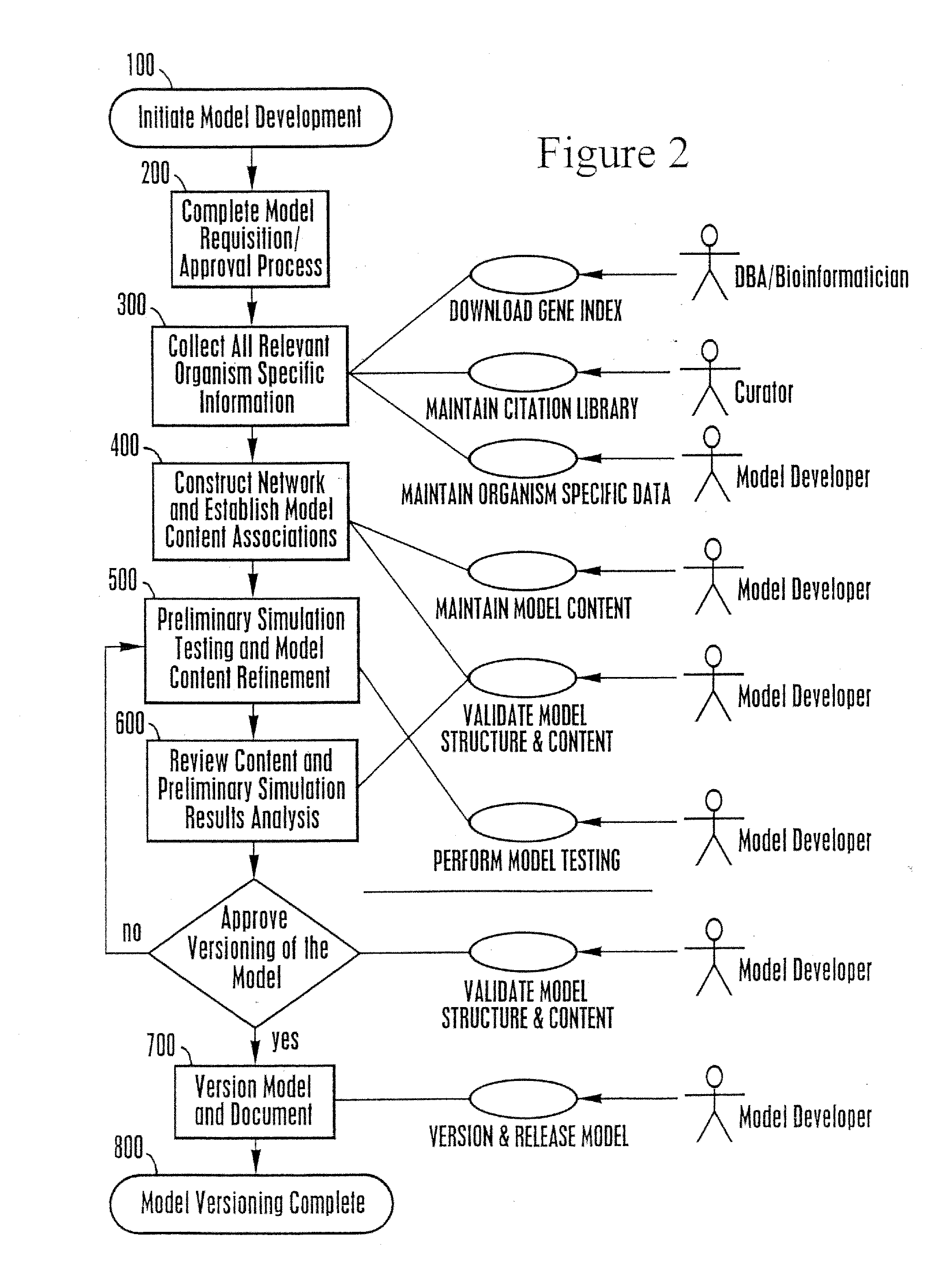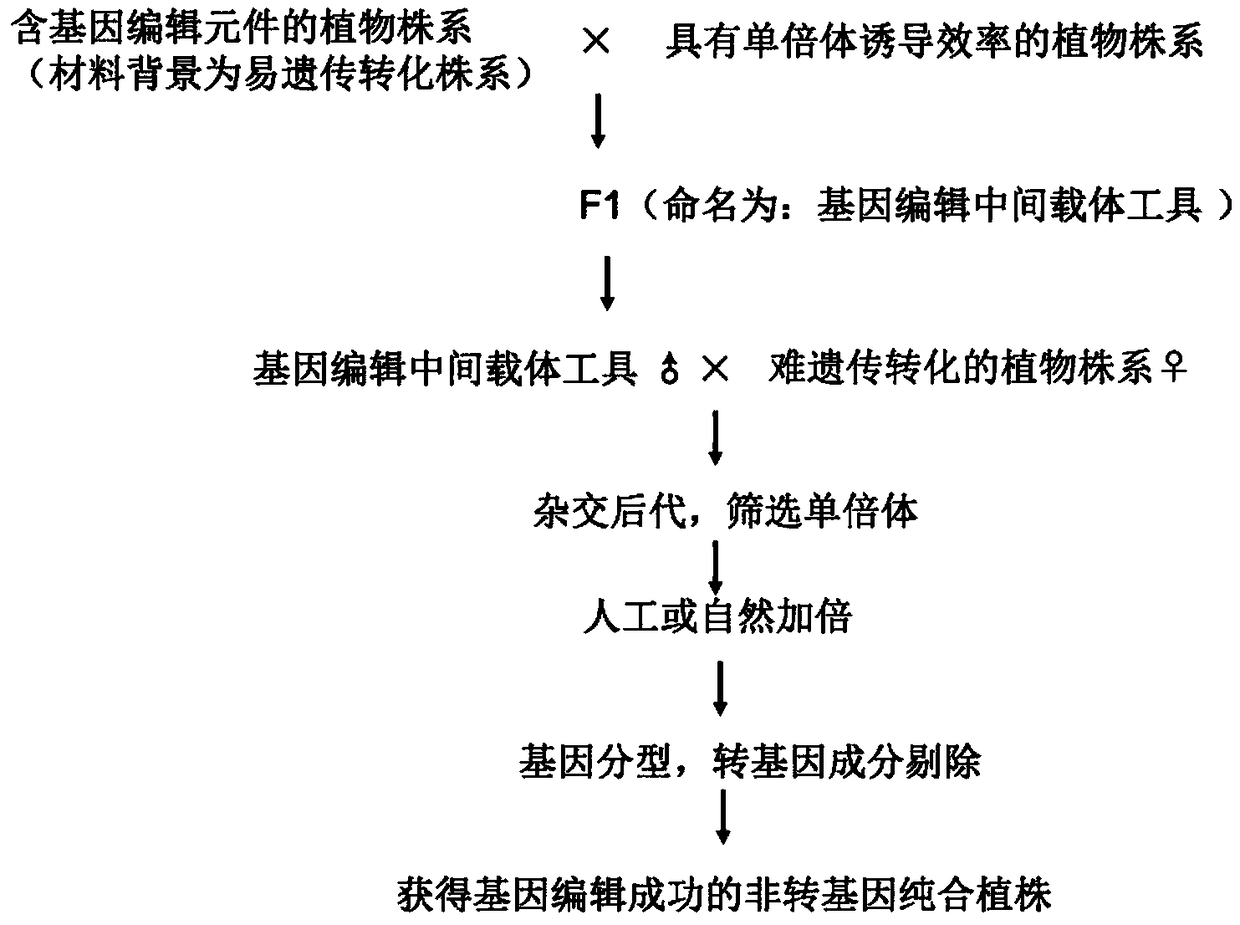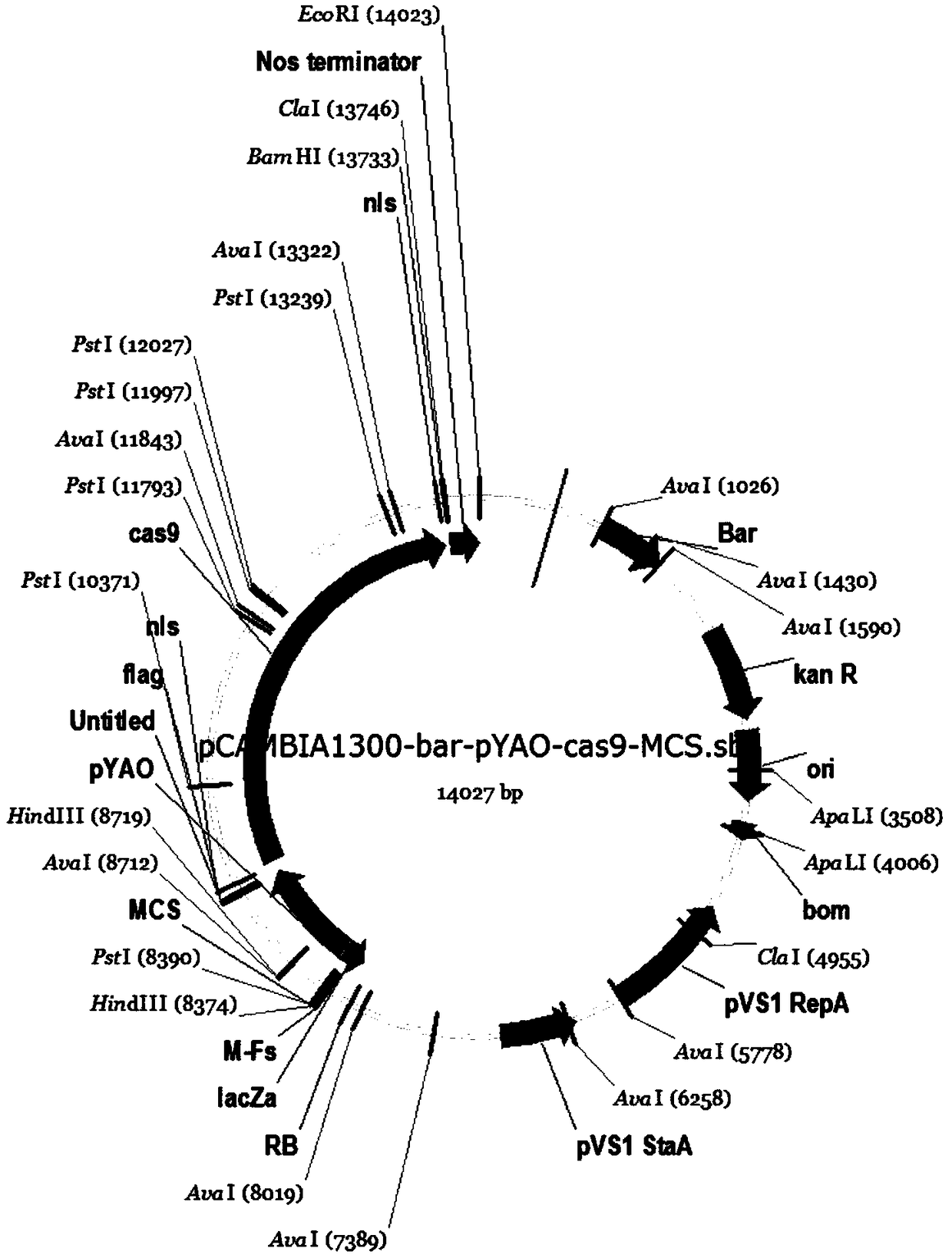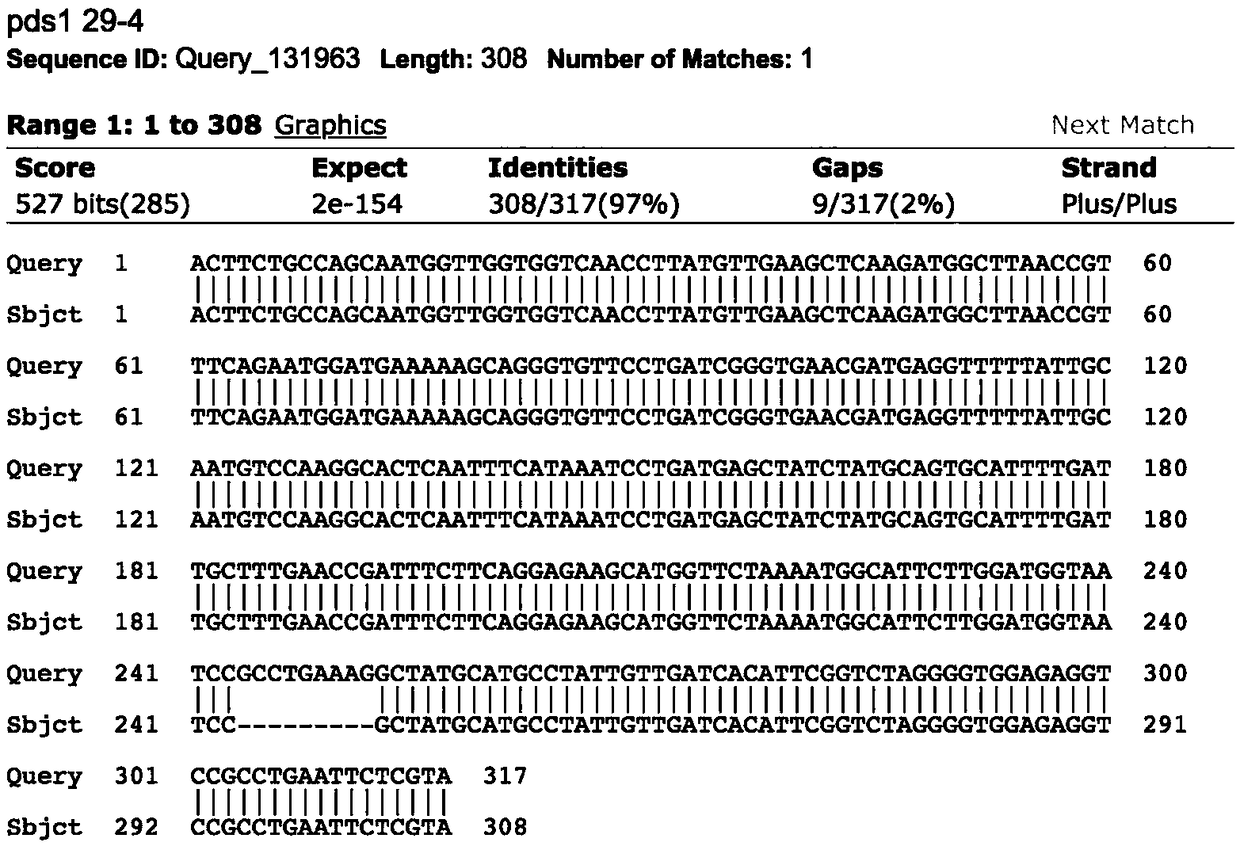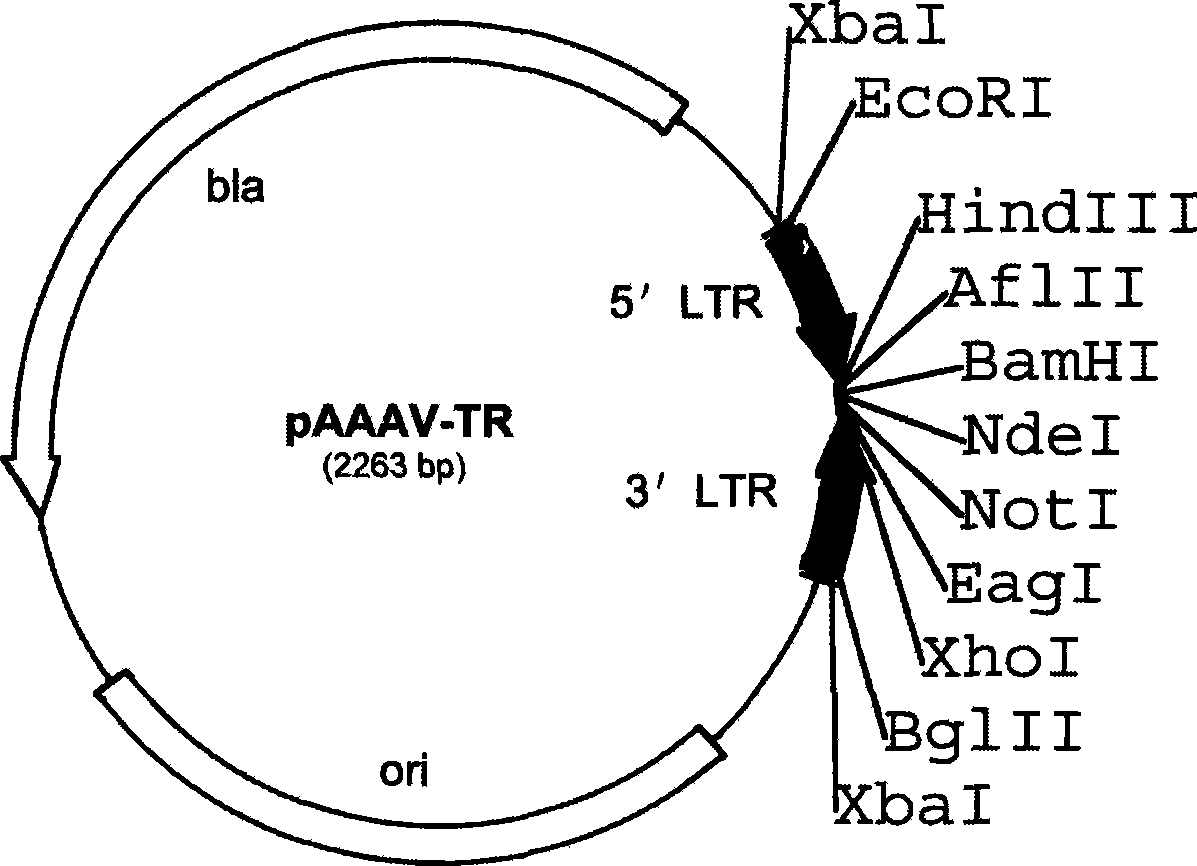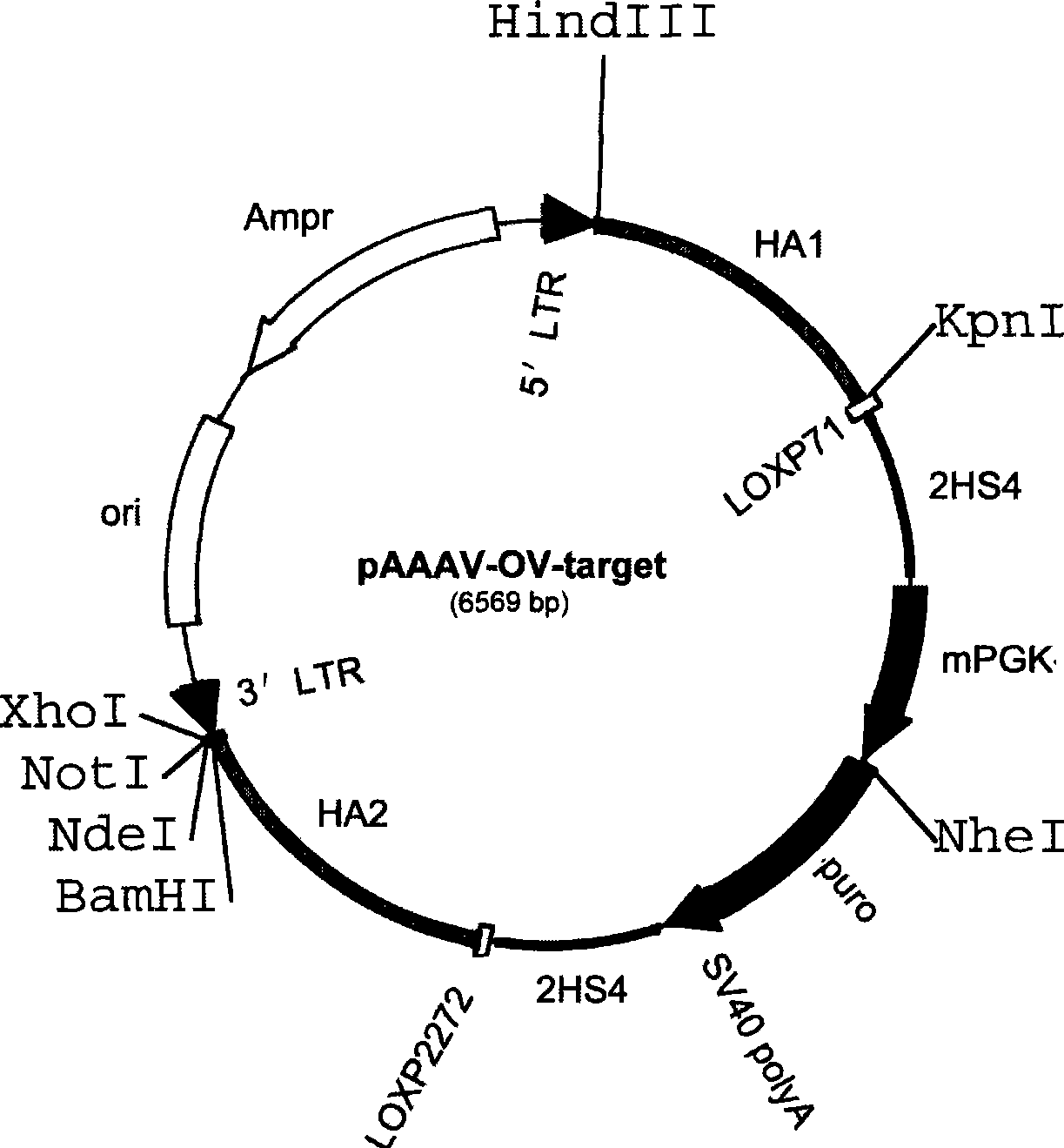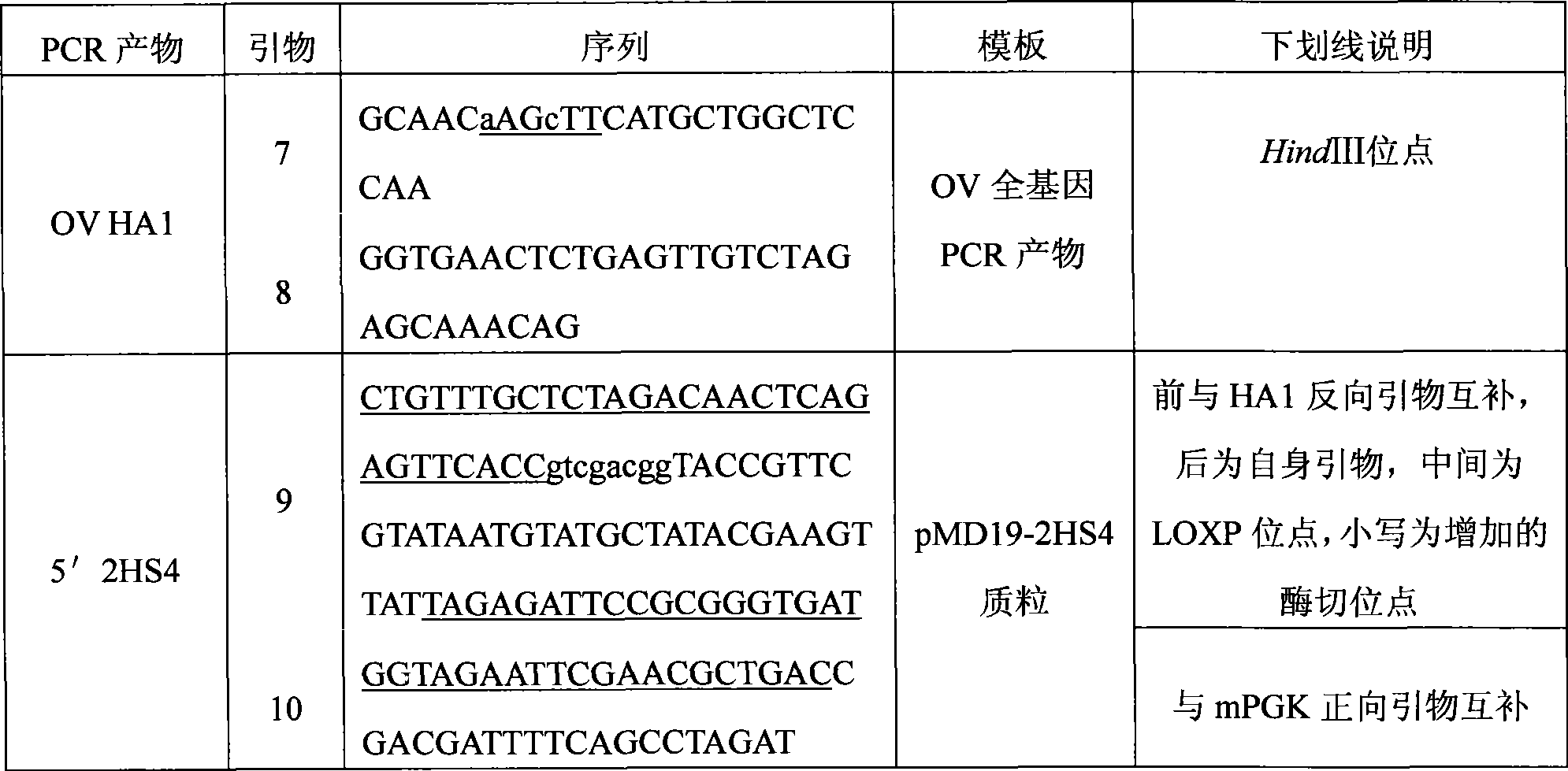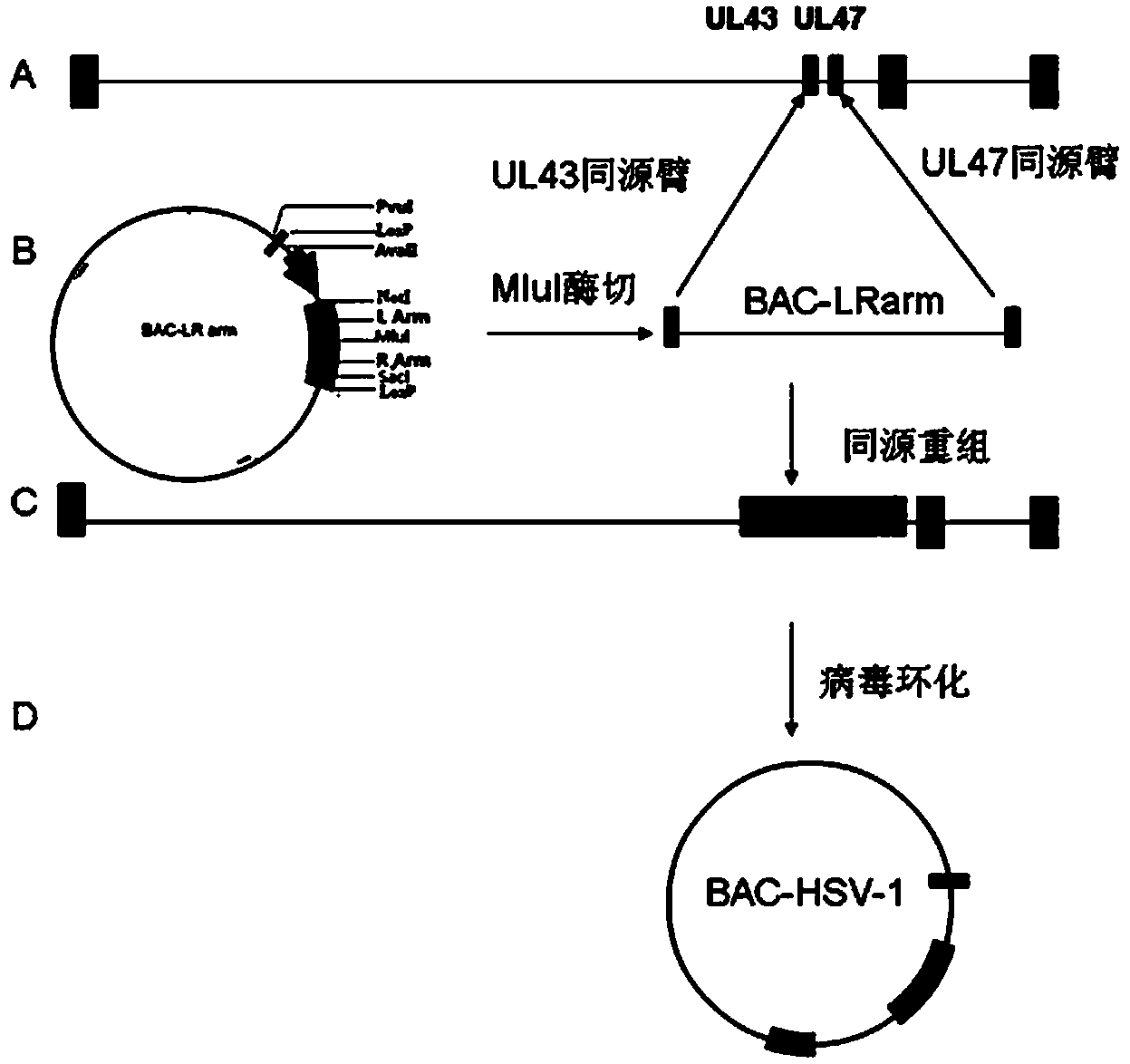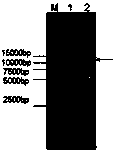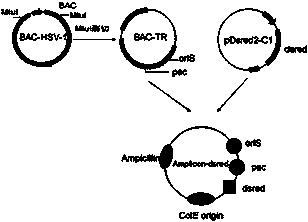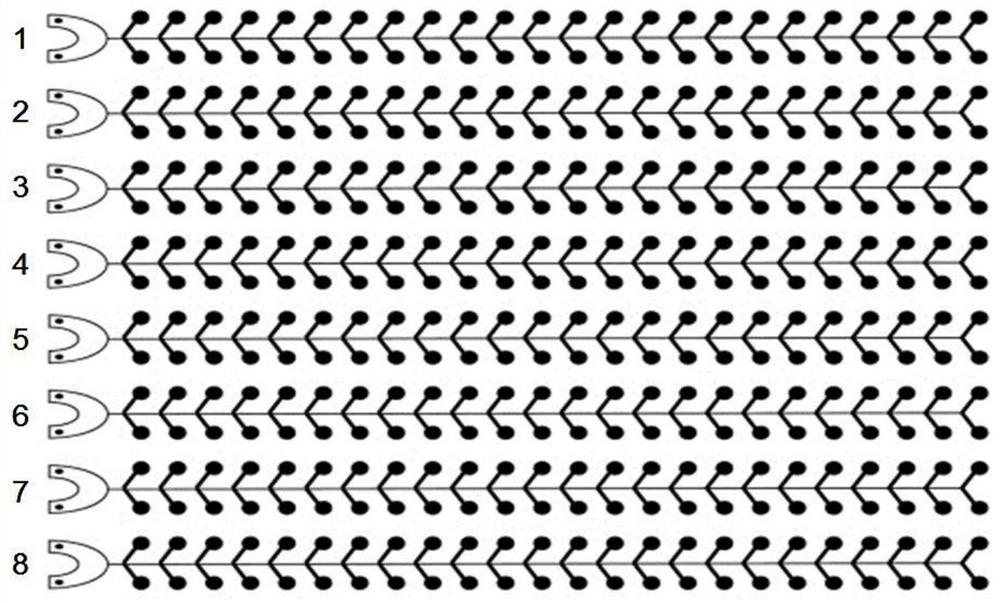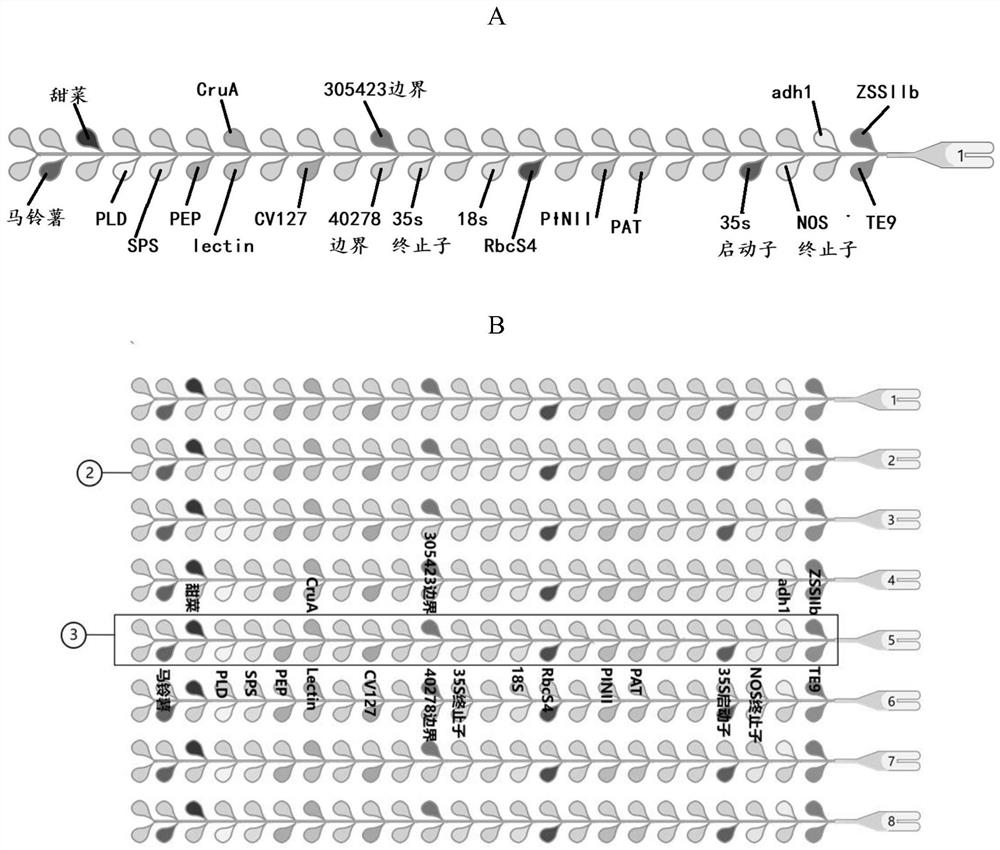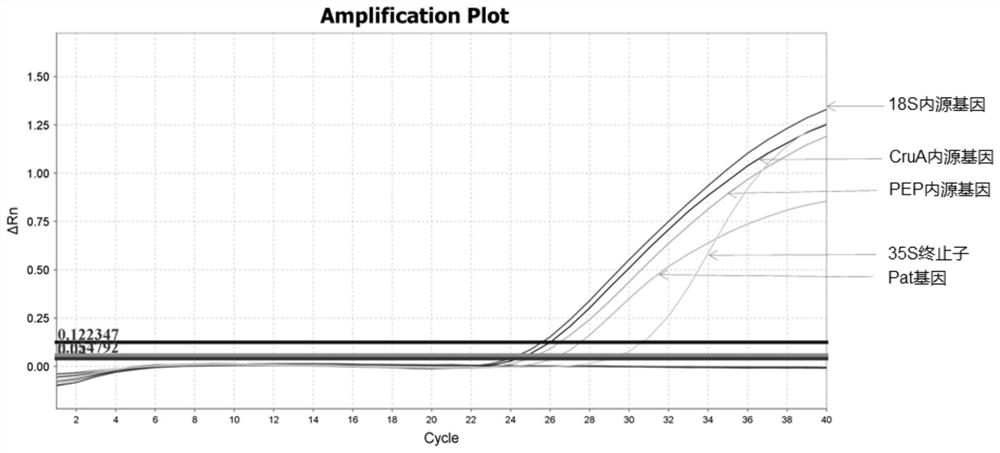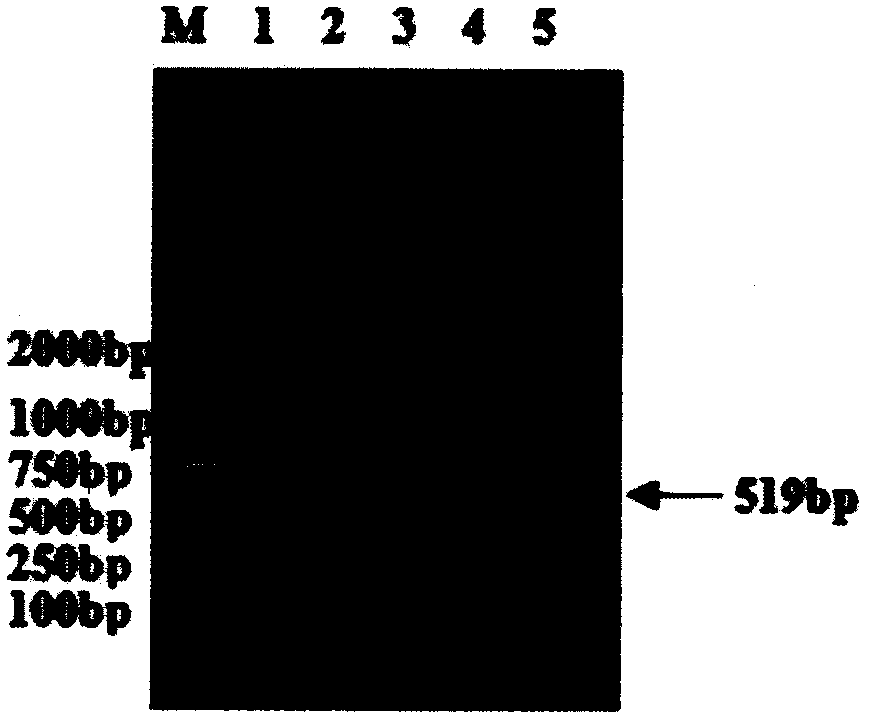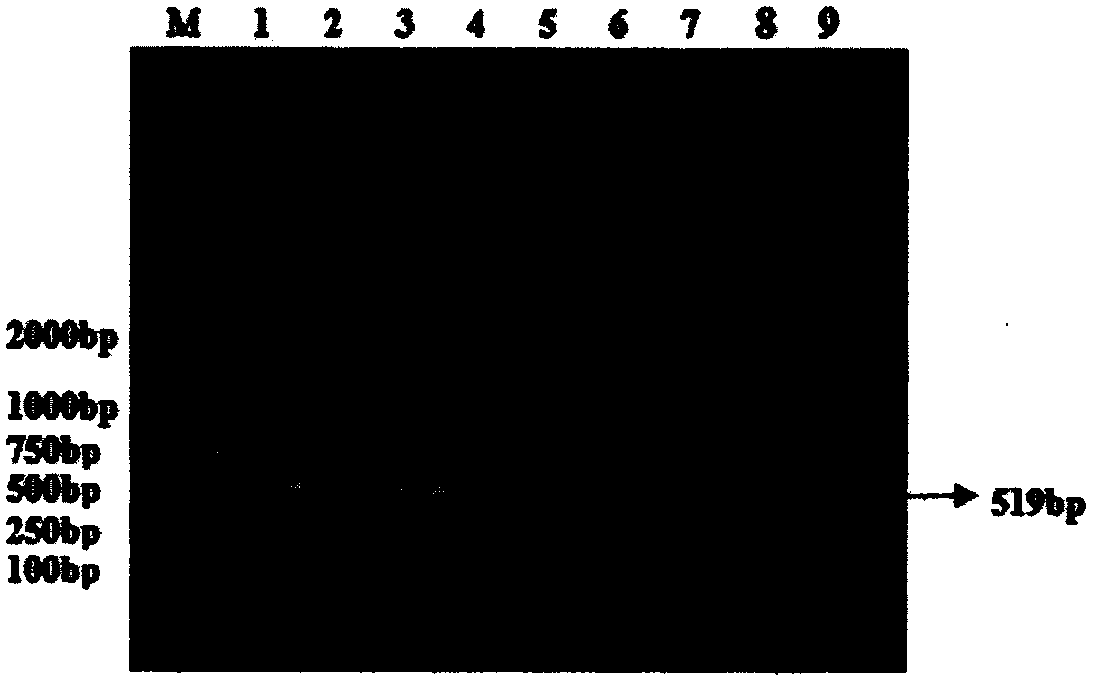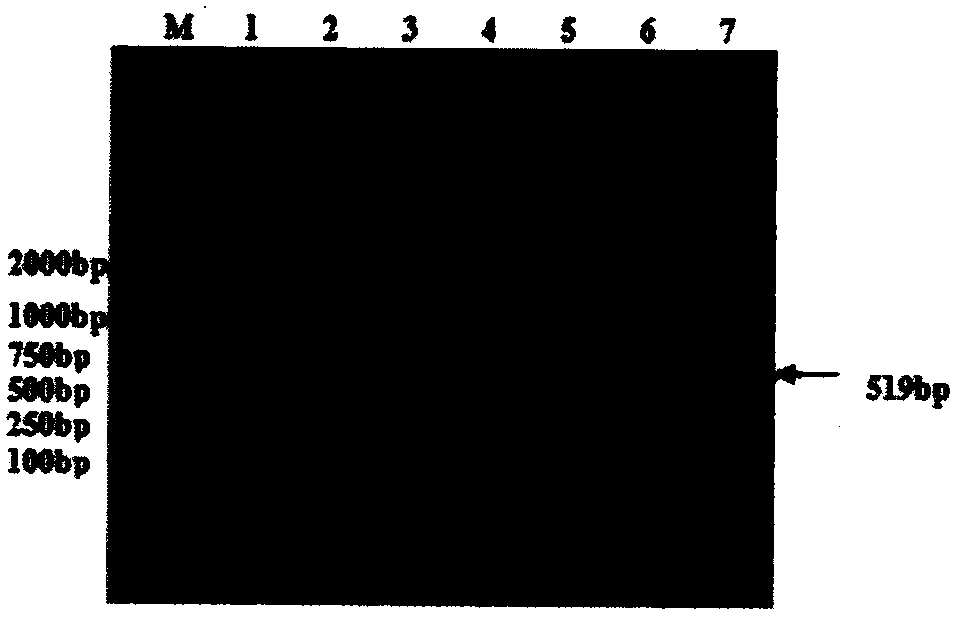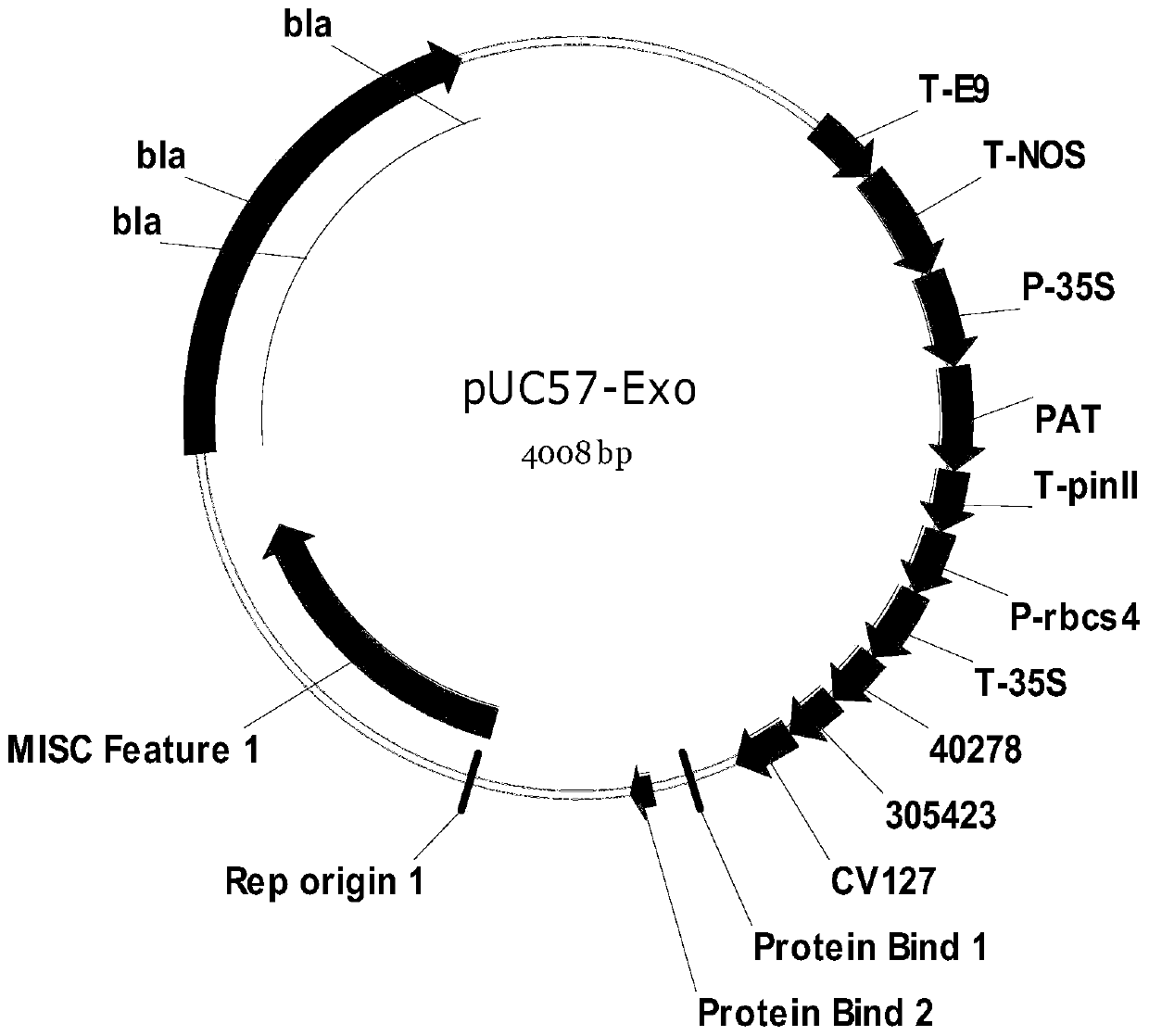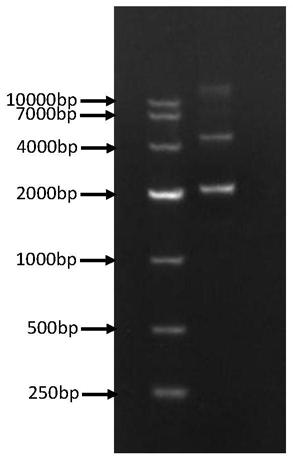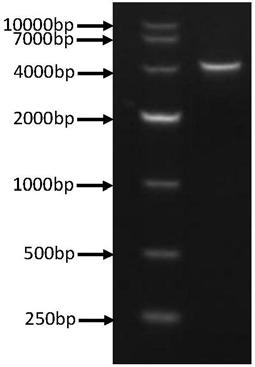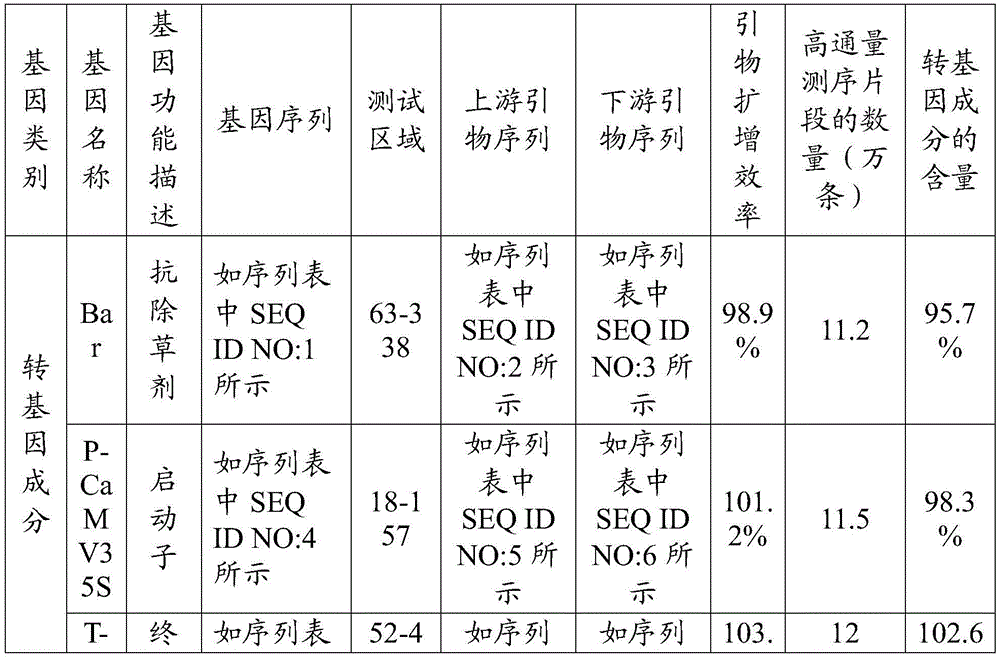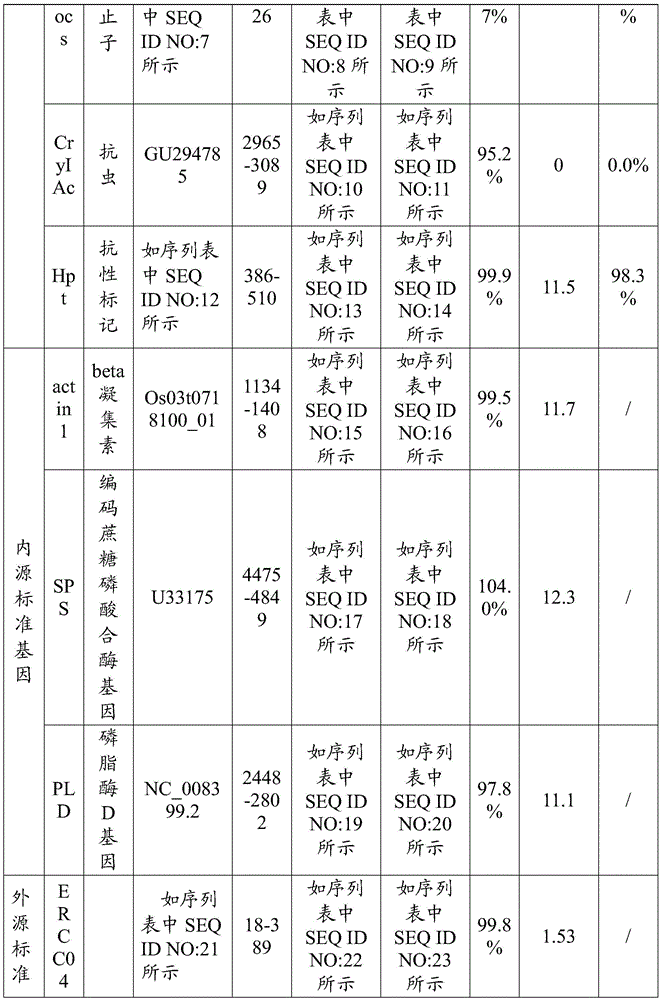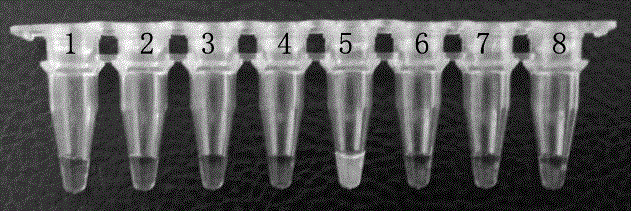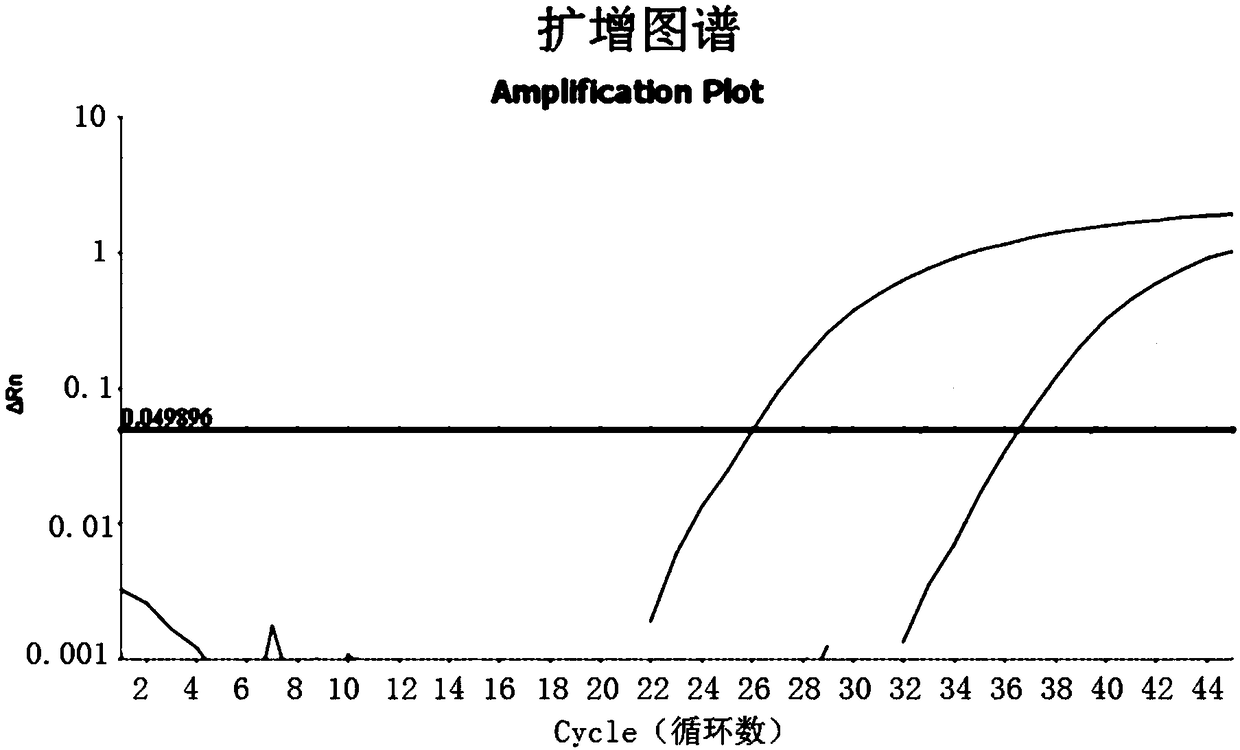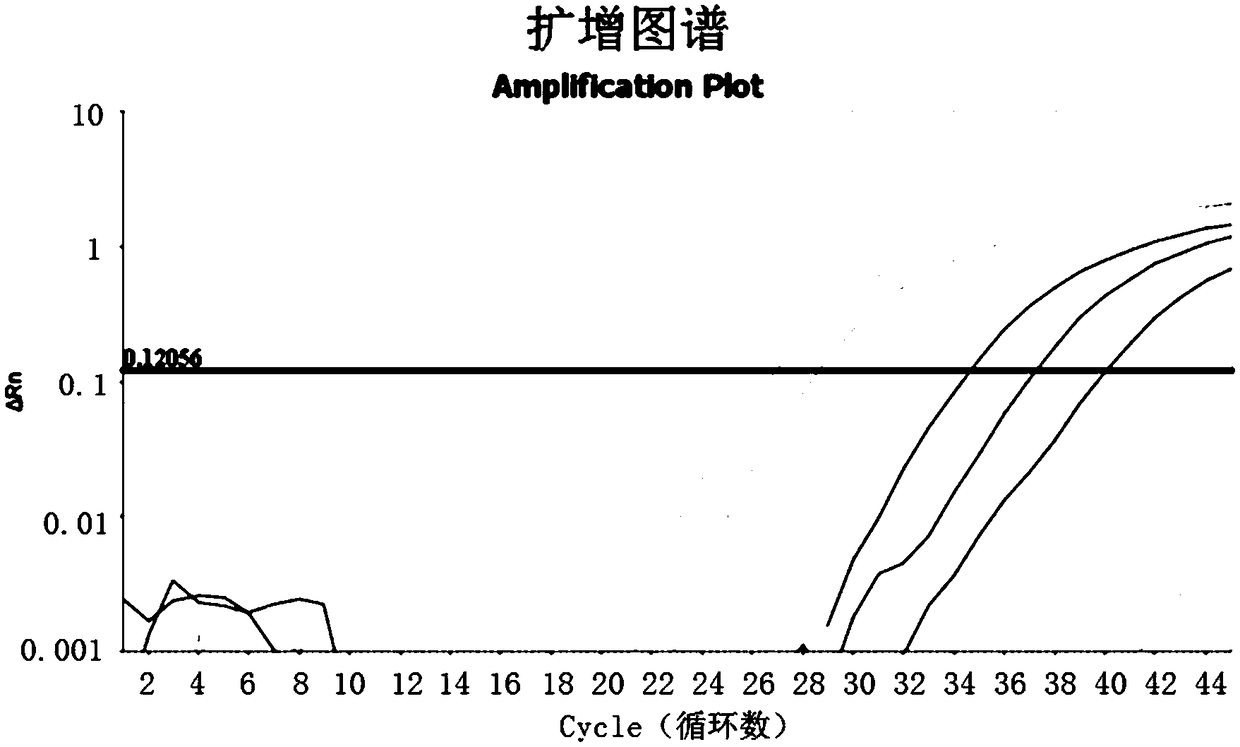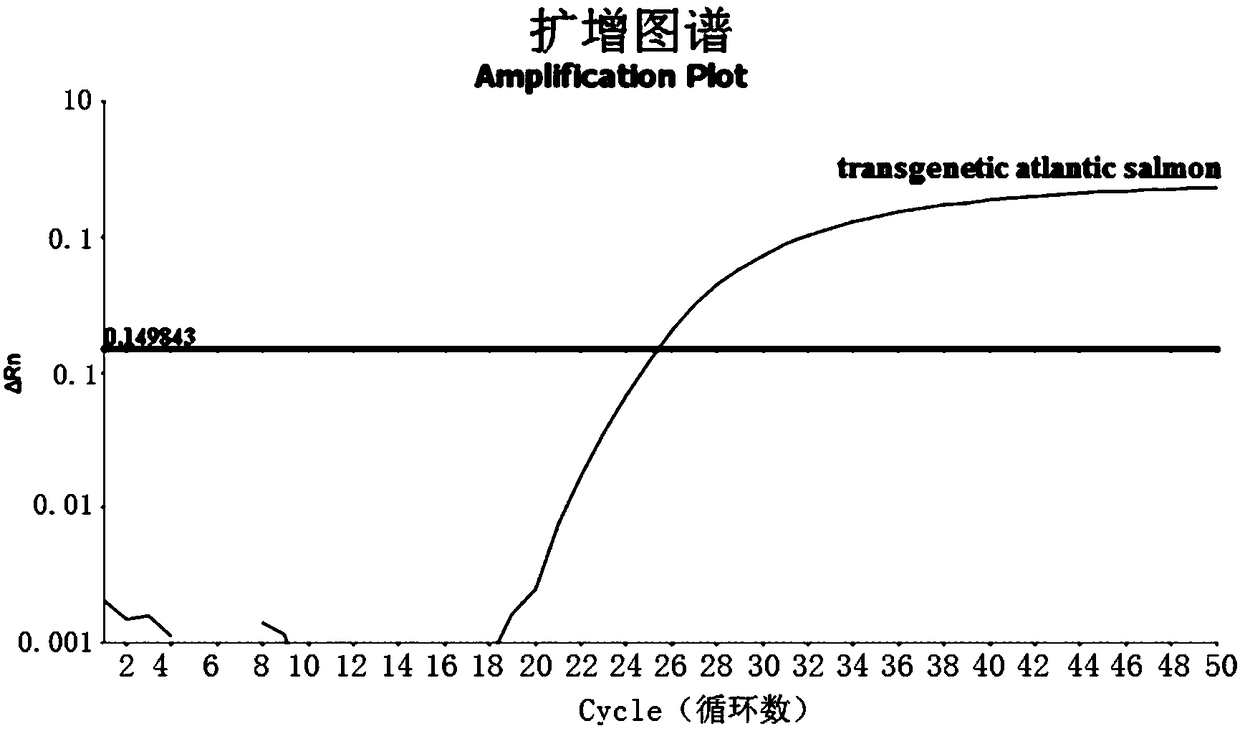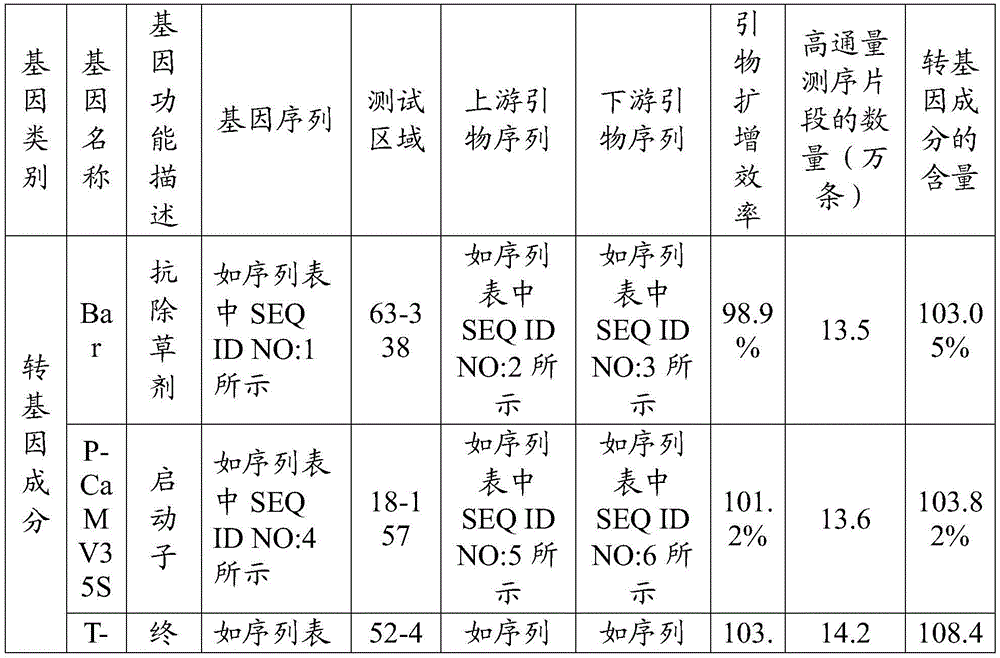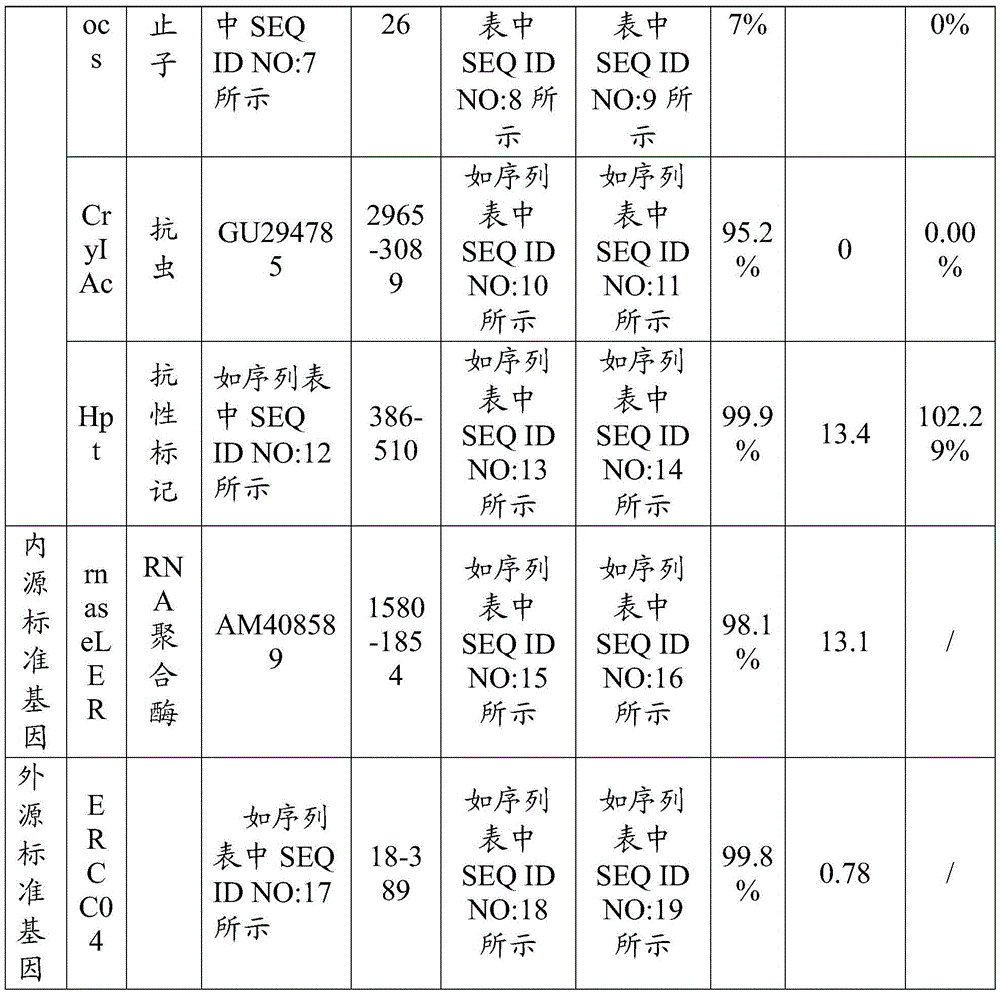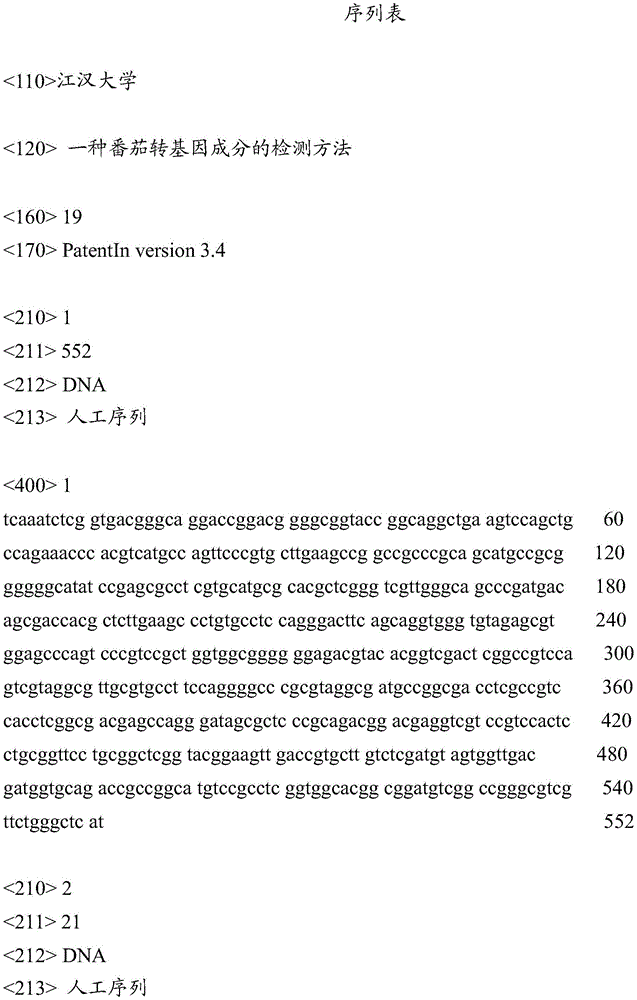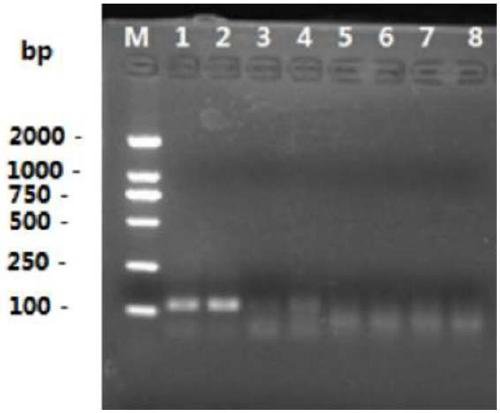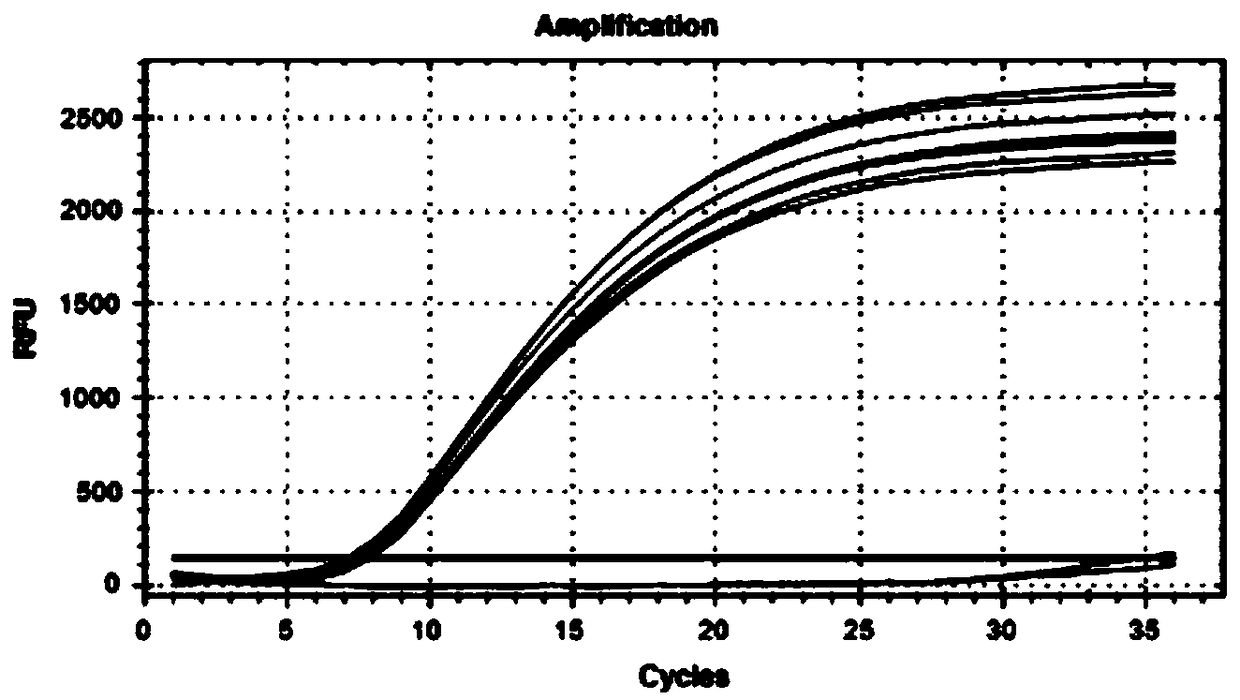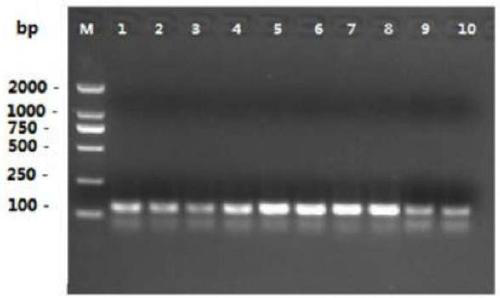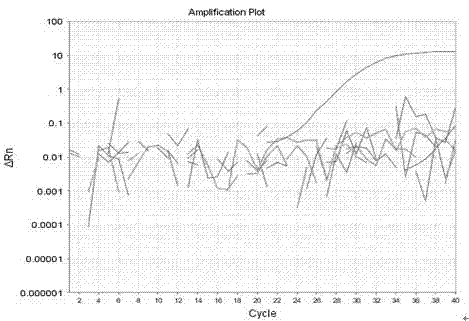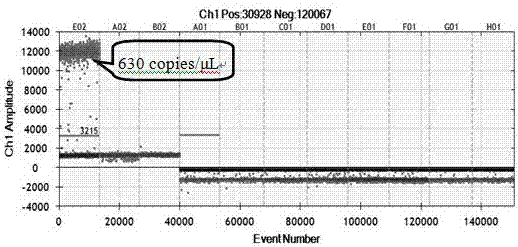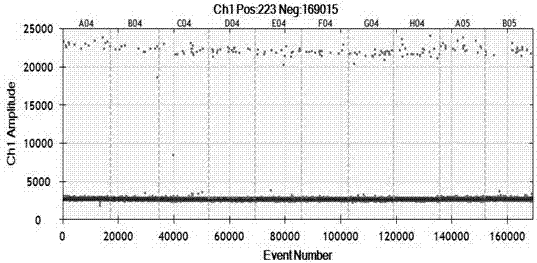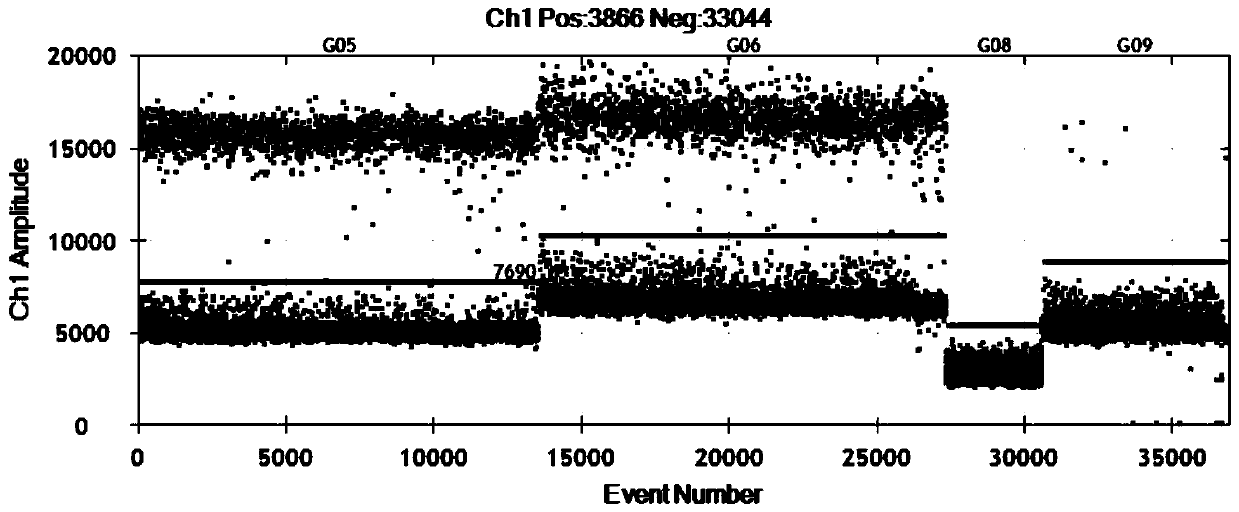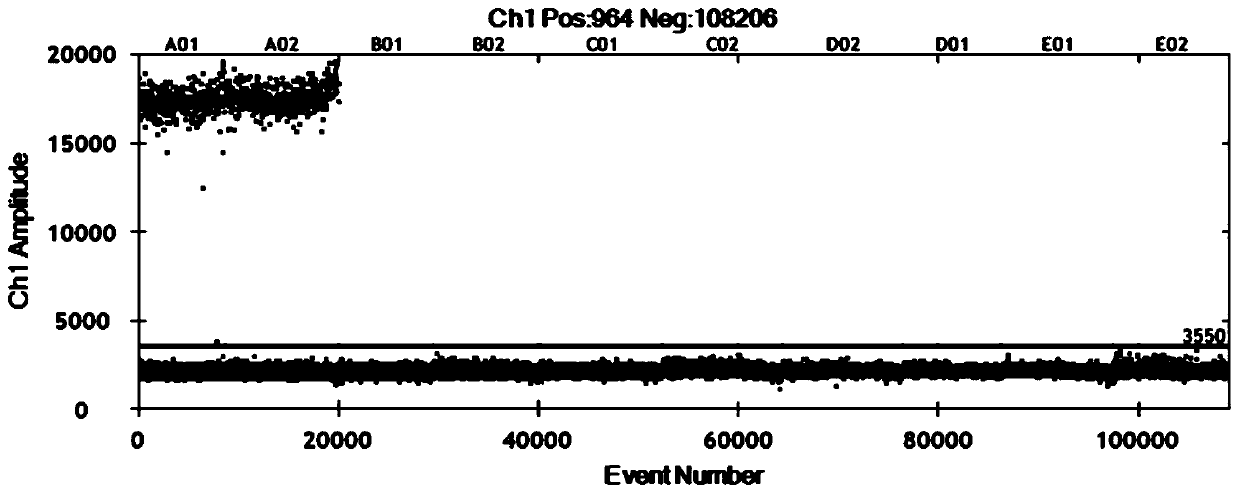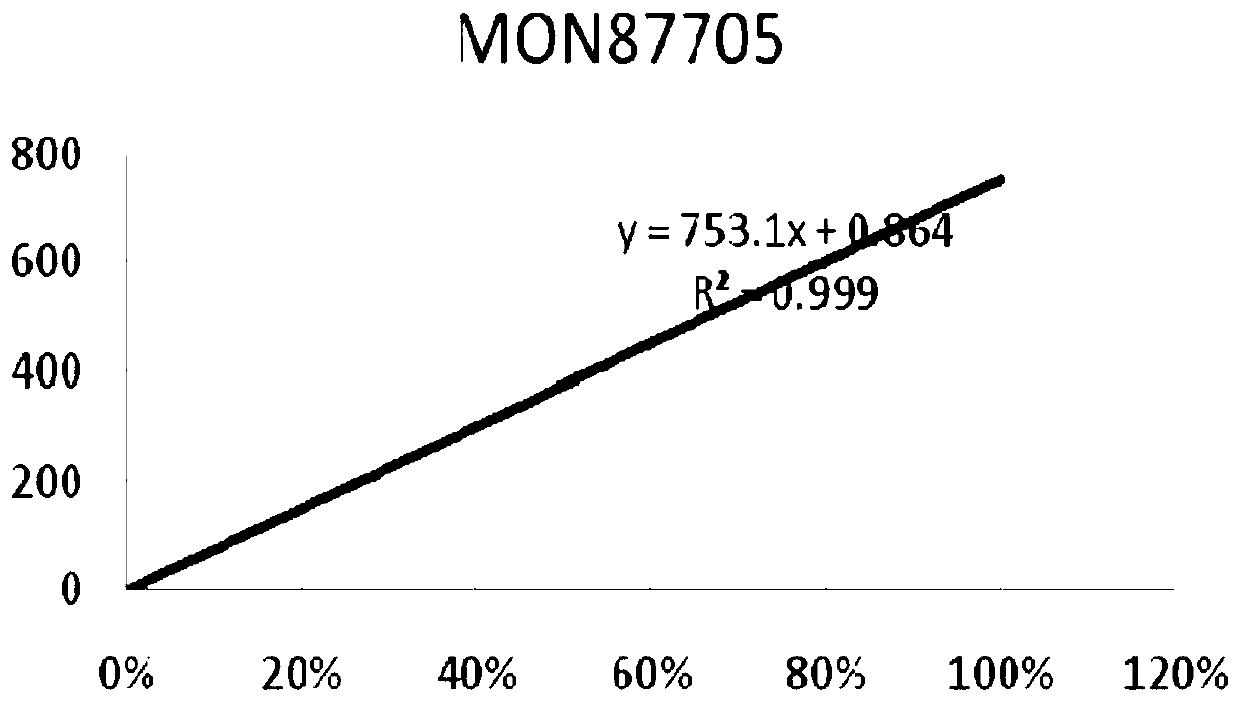Patents
Literature
69 results about "Gene Component" patented technology
Efficacy Topic
Property
Owner
Technical Advancement
Application Domain
Technology Topic
Technology Field Word
Patent Country/Region
Patent Type
Patent Status
Application Year
Inventor
Efficient induced pluripotent stem cell reprogramming method for blood cells
PendingCN108085299ASample source is convenientAccumulation of genetic mutations is lowBlood/immune system cellsArtificially induced pluripotent cellsProgenitorRed blood cell
The invention belongs to the field of cells and in particular relates to an efficient induced pluripotent stem cell reprogramming method for blood cells. The method comprises the following steps: S1,extracting monocyte from a blood specimen, and performing selective culture with an amplification culture medium so as to obtain erythrocyte progenitor cells; S2, introducing a free carrier with at least one potentiality determinant factor into the obtained erythrocyte progenitor cells; S3, culturing the erythrocyte progenitor cells with the free carrier by using a pluripotent stem cell inductionculture medium, and performing induction in a feeding layer free system so as to obtain reprogrammed intermediate state cells; S4, after induction is completed, replacing the pluripotent stem cell induction culture medium in the step S3 by a pluripotent stem cell culture medium to maintain culture, thereby obtaining cells that potentiality determinant factor expression is vanished and expression of endogenous pluripotent genes POU5F1, NANOG, TRA-1-60 and TRA-1-81 is activated, namely the induced pluripotent stem cells. The method has the beneficial effects that pluripotent stem cells without endogenous gene components can be efficiently induced, and the method is applicable to preclinical study and clinical application.
Owner:安徽中盛溯源生物科技有限公司
Systems and methods for constructing genomic-based phenotypic models
The invention provides a computer implemented process for constructing a scalable output network model of a bioparticle. The process includes computer implemented steps of: (a) accessing a database of network gene components including an annotated network set of open reading frames (ORFs) of a bioparticle genome; (b) forming a data structure associating the network gene components with network reaction components, the data structure establishing a data set specifying a network model of connectivity and flow of the network reaction components, and (c) transforming the data set into a mathematical description of reactant fluxes defining the network model of connectivity and flow, wherein the mathematical description defines a scalable output network model of a bioparticle.
Owner:GENOMATICA INC
Method for building special microRNA knock-down mouse model of heart
ActiveCN101985628AVector-based foreign material introductionAnimal husbandryGene ComponentCardiac muscle
The invention relates to the technical field of biotechnology, in particular to a method for building a special microRNA knock-down mouse model of a heart. The invention provides a transgenic mouse built by using a miRNA sponge technology. Exogenous gene components comprise a myocardium special promoter, a miR-328 sponge and a transcription termination signal. The myocardium miR-328 of the mouse is knocked down by almost 50%, and the mouse model is suitable for selection of antiarrhythmic drugs because the miR-328 is involved in the occurrence of arrhythmia. The method is based on the transgenic mouse, so the model can stably express the sponge to stably knock miRNA down and can inherit simultaneously. The mouse phenotype is stable, thus the mouse model is applicable for study of subsequent functions.
Owner:HARBIN MEDICAL UNIVERSITY
Phage-assisted multi-bacterial continuous directed evolution system and method
ActiveCN107418964AImprove evolutionary efficiencyBacteriaNucleic acid vectorGene ComponentBacteriophage
The invention discloses phage-assisted multi-bacterial continuous directed evolution system and method. The system includes: a phage SM which carries an evolution target gene, a plurality of assistant plasmids HP which support different SM proliferations before and after the evolution, and a plasmid IP which induces mutation. In the system, the different HPs are arranged in different host bacteria, so that proliferation and evolution efficiencies of the phage are effectively improved, and meanwhile, mutual interference between different gene components is avoided. The system and method have great practicability and can be applied to directed evolution of various genes.
Owner:SHENZHEN INST OF ADVANCED TECH CHINESE ACAD OF SCI
Enhancing vegetative protein production in transgenic plants using seed specific promoters
In various embodiments, the invention provides expression systems for heterologous protein expression in vegetative plant tissues, utilizing plant seed gene components that are adapted to orchestrate high levels of vegetative protein production. The expression systems may include host plant cells having recombinant genomes, and the plant cells may be maintained under protein expressing conditions, for example in tissue culture. The cells may be induced to express an ABD transcription factor, for example by transformation with a vector having a constitutive ABB expression cassette. The recombinant sequences in operative linkage may include an integrated expression promoter responsive to the ABI3 transcription factor, such as an arcelin gene promoter, a vicilin gene promoter and a napin gene promoter. A 5′ untranslated region may include a region of an ABA responsive plant seed gene or an AB 13 responsive plant seed gene. A plant secretion signal peptide coding sequence may be included. An integrated heterologous protein coding region, encoding a recombinant protein, may be provided in an open reading frame with the signal peptide coding sequence. A 3′ untranslated region may be provided having a polyadenylation signal.
Owner:SIMON FRASER UNIVERSITY
LAMP detecting primer group, kit and detecting method for cry3A gene in transgenic plant
InactiveCN103924000AHigh sensitivitySimple and fast operationMicrobiological testing/measurementDNA/RNA fragmentationTurbidityColor changes
The invention discloses an LAMP detecting primer group, a kit and a detecting method for a cry3A gene in transgenic plant. The primer group consists of 5 specific primers with nucleotide sequences as shown in SEQ ID NO:1-5. The detecting kit comprises detecting primer liquor, loop primer liquor, DNA polymerase with strand displacement activity, 10*reaction buffer liquor, dNTPs liquor, positive DNA contrast and negative DNA contrast. The kit further contains a color developing agent. The detecting method adopts the specific primers and the DNA polymerase with the strand displacement activity to carry out amplification onto a sample DNA template at 63 DEG C-65 DEG C, and adopts a method of adding the color developing agent to observe color changes or to directly observe turbidity change of precipitates in a reaction tube, and the like, to judge whether the sample contains the cry3A gene component or not. The LAMP detecting primer group, kit and detecting method disclosed by the invention do not need a special apparatus, have the characteristics of being quick and efficient, simple and convenient to operate, strong in specificity, high in sensitivity, and the like, and are suitable for site detection.
Owner:JILIN ACAD OF AGRI SCI
Digital PCR (polymerase chain reaction) detection method for transgenic components
InactiveCN104962623ARealize accurate detectionThe method steps are simpleMicrobiological testing/measurementGene ComponentGenetics
The invention provides a digital PCR (polymerase chain reaction) detection method for transgenic components. The digital PCR detection method includes performing digital PCR amplification reaction by the aid of primer sequences and probe sequences of the CaMV35s promoters and primer sequences and probe sequences of the NOS terminators. The digital PCR detection method has the advantages that transgenic animal and plant specimens can be accurately detected by the aid of the digital PCR detection method, and the sensitivity can reach 0.1%; steps of the digital PCR detection method are simple and are easy to operate, and accordingly the digital PCR detection method is high in flexibility during actual application and is an effective method for detecting the transgenic components.
Owner:CHINESE ACAD OF INSPECTION & QUARANTINE
LAMP detection primer group of cry2Ab gene in transgenic crop and detection kit as well as detection method
InactiveCN103773867AHigh sensitivitySimple and fast operationMicrobiological testing/measurementDNA/RNA fragmentationPolymerase LTurbidity
The invention discloses an LAMP detection primer group of a cry2Ab gene in a transgenic crop and a detection kit as well as a detection method. The LAMP detection primer group comprises six specific primers, and the nucleotide sequences of the specific primers are as shown in SEQ ID NO: 1-6. The detection kit comprises a primer solution, DNA (deoxyribonucleic acid) polymerase with strand displacement activity, 10* reaction buffer liquid, dNTPs solution, positive DNA control and negative DNA control and can aslo contain a color developing agent. The detection method is characterized in that methods of using the specific primers and the DNA polymerase with the strand displacement activity for amplifying a sample DNA template at the temperature of 63-65 DEG C, adding the color developing agent to observe change in color or directly observe change in turbidity of precipitants in a reaction tube and the like are used for judging whether a sample contains the cry2Ab gene. The method does not need special instruments and has the characteristics of fastness, high efficiency, simplicity and convenience to operate, strong specificity, high sensitivity and the like and is suitable for field test.
Owner:JILIN ACAD OF AGRI SCI
Isothermal amplification method for detecting cry1Ac-transfected sugarcane
InactiveCN102965436AThe color reaction is intuitive and convenient to see the resultStrong specificityMicrobiological testing/measurementBiotechnologyColor reaction
The invention relates to an isothermal amplification method for detecting cry1Ac-transfected sugarcane. The method comprises the steps of extracting sugarcane template DNA (Deoxyribonucleic Acid), establishing an isothermal amplification system and identifying an isothermal amplification product. According to the isothermal amplification method for detecting the cry1Ac-transfected sugarcane, four specific primers are designed aiming at base sequences of an exogenous target gene cry1Ac of stem-borer-resistant transgenic sugarcane, and a chain-displacement amplification reaction is carried out under the action of polymerase Bst, so that the specificity is high; meanwhile, the amplification reaction can be completed by only a water bath kettle and a normal-temperature low-speed centrifuge capable of completing instant centrifugation, so that instruments and equipment required are simple, the amplification cost is relatively lower compared with that of the conventional PCR (Polymerase Chain Reaction) technology, which needs a gel scanning system and a PCR (or real-time PCR) instrument, which are expensive, and the like, the amplification time is short, the amplification efficiency is high, and the result viewing is visual and convenient due to visual color reaction; and after the system is established, extracted DNA of a sugarcane genome directly serves as a template, so that the method is applicable to the cry1Ac-transfected sugarcane screening of laboratories and fields and the detection and tracking of cry1Ac ingredients and has the advantages of low cost, rapidness, sensitivity, simplicity and accuracy.
Owner:FUJIAN AGRI & FORESTRY UNIV
Method for detecting transgenic components of corn by utilizing quadruple real-time fluorescent PCR
PendingCN112126709ALow costThe actual need to realize multiple inspections in one tubeMicrobiological testing/measurementDNA/RNA fragmentationBiotechnologyGene Component
The invention discloses a method for detecting transgenic components of corn by utilizing quadruple real-time fluorescent PCR, and primers and probes used in the method. The method disclosed by the invention comprises the following steps of designing the primers and the probes required by quadruple real-time fluorescent PCR amplification; extracting genome DNA in the corn to be detected; carryingout quadruple real-time fluorescent PCR amplification; and judging whether the corn to be detected is transgenic corn or not according to a PCR amplification result. The invention provides the effective method for rapidly detecting whether the corn and a deep processing product thereof are the transgenic corn or not.
Owner:ZHEJIANG ECONOMIC & TRADE POLYTECHNIC
Breeding method for intermediate type light/temperature-sensitive genic sterile line of japonica rice
The invention belongs to the field of rice breeding, discloses a breeding method for an intermediate type light / temperature-sensitive genic sterile line of japonica rice and relates to the utilization for the advantages of two-line japonica hybrid of rice. The invention aims to utilize a light / temperature-sensitive genic sterile gene to breed the intermediate type light / temperature-sensitive genic sterile line of japonica rice through the japonica hybrid. The two-line sterile line has japonica rice gene components at a certain ratio and can be matched with a hsien rice restoring line for breeding the two-line japonica hybrid of rice with strong heterosis. The proportion of the japonica rice gene components is less, the light sensitivity is weak and the seed production risk is reduced. On the basis of the characteristics of freedom and being not constrained by the restoring and maintaining relationship of the two-line japonica hybrid of rice, the application of the genic sterile line for breeding the two-line japonica hybrid of rice is capable of realizing the utilization for the heterosis of the two-line japonica hybrid of rice and greatly widening the limitation for the advanced genetic resource utilization of the two-line japonica hybrid of rice.
Owner:ZHEJIANG NONGKE SEED IND
Detection method for soybean transgenic ingredients
InactiveCN105567833ARealize quantitative detectionThe test result has no lower limitMicrobiological testing/measurementTransgeneGene Component
The invention discloses a detection method for soybean transgenic ingredients, and belongs to the technical field of biology. The method includes the steps that the transgenic ingredients, endogenesis standard genes and exogenous standard genes are determined; a multiple amplification primer is prepared; a mixed sample is obtained through sampling and mixing; a genome of the mixed sample is extracted, and the exogenous standard genes are added to obtain mixed nucleic acid; a high-throughput sequencing library is constructed; high-throughput sequencing is conducted on the high-throughput sequencing library to obtain a sequencing fragment set; the number of sequencing fragments of the transgenic ingredients, the number of sequencing fragments of the endogenesis standard genes and the number of sequencing fragments of the exogenous standard genes in the sample to be detected are obtained; according to the number of the sequencing fragments of the exogenous standard genes, whether an experiment is successful or not is judged, and the content of the transgenic ingredients in the sample is calculated; according to the content of the transgenic ingredients, whether the sample to be detected contains content of the transgenic ingredients or not is judged. Any kind of transgenic ingredients in the sample to be detected can be quantitatively detected at the same time.
Owner:JIANGHAN UNIVERSITY
Transgenic maize multiple PCR screening detection primer and detection method
InactiveCN104404161AQuick checkAccurate detectionMicrobiological testing/measurementDNA/RNA fragmentationAgricultural scienceCapillary electrophoresis
The invention discloses a transgenic maize multiple PCR screening detection primer and detection method. The primer has relatively strong specificity, and can be used for multiple PCR screening detection analysis. The transgenic maize screening detection method which is simple and convenient to operate, good in extension performance and high in sensitivity is provided, and the transgenic maize multiple target detection is realized. The PCR amplification product is analyzed by utilizing capillary electrophoresis, the resolution ratio of the fragment size can reach a plurality of bases, and the resolution ratio is high. According to the primer and the detection method, a simple, convenient, effective, reliable and high-flux detection method is provided for the transgenic maize multiple target detection. A multiple PCR reaction system established by the experiment not only can detect foreign gene components of the imported transgenic maize, but also can be amplified to screening detection of other transgenic crops.
Owner:四川省农业科学院分析测试中心
Method using salamander Oct4 to reprogram human blood cells into iPSC
ActiveCN108373998AWill not integrate stablyImprove induction efficiencyForeign genetic material cellsProgenitorReprogramming
The invention belongs to the field of cells and particularly relates to a method using salamander Oct4 to reprogram human blood cells into iPSC. The method includes the steps of S1, acquiring progenitor red blood cells; S2, importing a free vector containing a salamander Oct4 transcription factor and other transcription factors into the progenitor red blood cells obtained in S1; S3, subjecting theprogenitor red blood cells, containing the free vector, obtained in S2 to multipotential stem cell induction medium culture, and inducing into reprograming intermediate-state cells in a feed-layer-free system; S4, after complete induction, replacing the multipotential stem cell induction medium in S3 with multipotential stem cell culture medium to continue the culture so as to obtain the cells with disappeared salamander Oct4 transcription factor and other transcription factor expression and activated endogenous multipotential gene POU5F1, NANOG, TRA-1-60 and TRA-1-81 expression, wherein thecells are the iPSc. The method has the advantages that efficient induction can be performed to generate the hiPSC without exogenous gene components, and the method is applicable to preclinical study and clinical application.
Owner:安徽中盛溯源生物科技有限公司
Multiplex-polymerase chain reaction (PCR) rapid screening method for target gene elements of transgenic sugarcane
InactiveCN103614471AImprove efficiencyEasy to useMicrobiological testing/measurementMultiplexGene Component
A multiplex-polymerase chain reaction (PCR) primer is designed by a sugarcane endogenous gene ALS and an exogenous gene element (including Ubiquitin promoter, NOS promoter, NOS terminator, a Bar gene and a Bt gene). After being optimized, a multiplex-PCR reaction system is established, wherein a template which has 60% Premixtaq<TM> volume, 0.3muM primer concentration and 150ng DNA is added into the reaction system, and the annealing temperature of the reaction system is set to be 56 DEG C; a sugarcane internal standard gene (ALS gene) and five exogenous transgenic elements (including the Ubi promoter, the Bt gene, the Bar gene, the NOS promoter and the NOS terminator) can be detected at the same time by one-time PCR reaction, and the detection limit reaches 1% of the DNA content of the template. The multiplex-PCR reaction system established by the experiment not only is capable of detecting the exogenous gene composition of transgenic sugarcane, but also is capable of effectively detecting other transgenic crops.
Owner:FUJIAN AGRI & FORESTRY UNIV
Detection of CaMV 35S promoter and nos terminator by adopting RPA (Recombinase Ploymerase Amplification) technology
ActiveCN103509875AMicrobiological testing/measurementDNA/RNA fragmentationBiotechnologyForward primer
The invention provides an RPA sifting and detecting method for transgenic crops containing P-35S and T-nos elements, and particularly discloses a primer and probe combination applicable to the identification of transgenic plants containing transgenic elements, namely a CaMV 35S promoter and a nos terminator by adopting an RPA technology. The forward primer sequences of the primer and probe combination are shown in SEQ ID No.1 and SEQ ID No.4, the reverse primer sequences of the primer and probe combination are shown in SEQ ID No.2 and SEQ ID No.5, and the probe sequences of the primer and probe combination are shown in SEQ ID No.3 and SEQ ID No.6. In addition, the invention further discloses a method for identifying transgenic crops containing the two kinds of elements, and the method comprises the following steps: extracting the DNA of a sample to be detected as a template, and using the primer to perform RPA rapid amplification and real-time fluorescence detection, if an obvious amplification curve is obtained, the fact that the DNA of the detected sample contains P-35S and T-nos transgenic elements is proved.
Owner:THE INST OF BIOTECHNOLOGY OF THE CHINESE ACAD OF AGRI SCI
Systems and methods for constructing genomic-based phenotypic models
InactiveUS20110231166A1Analogue computers for chemical processesRecombinant DNA-technologyData setORFS
The invention provides a computer implemented process for constructing a scalable output network model of a bioparticle. The process includes computer implemented steps of: (a) accessing a database of network gene components including an annotated network set of open reading frames (ORFs) of a bioparticle genome; (b) forming a data structure associating the network gene components with network reaction components, the data structure establishing a data set specifying a network model of connectivity and flow of the network reaction components, and (c) transforming the data set into a mathematical description of reactant fluxes defining the network model of connectivity and flow, wherein the mathematical description defines a scalable output network model of a bioparticle.
Owner:GENOMATICA INC
Plant gene editing method independent on genotype
InactiveCN109182371AImprove securityNo need to cullVectorsVector-based foreign material introductionAdditive ingredientGenotype
The invention discloses a plant gene editing method independent on genotype, relates to the field of plant genetic engineering and solves the problems that descendant transgenic ingredients are removed unfavorably as a result of great heritable variation because existing gene edition is limited by genotype and tissue culture is needed. The method comprises the following steps: preparing an intermediate carrier with a tool attribute for gene edition by taking a transgenic plant gene editing target point gRNA and a gene editing system element and a plant strain with haploid inducting efficiencyas materials; inducting a plant to generate haploids by taking the intermediate carrier as a male parent and finishing gene edition at the same time; and carrying out natural or manual doubling to finally obtain a plant new variety / strain homozygote of the targeted gene edition. The method is free of complex genetic transformation and tissue culture processes after preparing the gene editing intermediate carrier tool, and achieves gene edition of different genotypes of a same plant by means of manual cross pollination.
Owner:JILIN ACAD OF AGRI SCI
Gene target vector based on bird gland related virus and construction method thereof
InactiveCN101503705AConvenience knockoutSuppress position effectMicroorganism based processesGenetic engineeringPosition effectComplete sequence
The invention discloses a gene targeting vector based on poultry adeno-associated virus, and a construction method thereof. The vector takes the poultry adeno-associated virus as a framework, wherein the inner sides of 5' and 3' LTR are connected with two homologous arms respectively; a gene component with positive selective resistance is connected between the two homologous arms; and two insulator elements are arranged between the gene component with positive selective resistance and the homologous arms respectively. The construction method comprises the following steps: (1) constructing a gene transfer vector of the poultry adeno-associated virus; (2) constructing pMD19-2HS4 plasmid; (3) amplifying OV complete sequence; (4) amplifying every component of the gene targeting vector and performing PCR splicing; and (5) constructing the gene targeting vector. The gene targeting vector has the advantages of effectively inhibiting position effect in a gene targeting process, improving the efficiency of screening positive clones, inhibiting random integration, improving the homologous recombination efficiency of the positive clones and having high gene transfer efficiency for non-active genes or temporal specific expressed genes.
Owner:JINLING INST OF TECH +2
Recombinant HSV (Herpes Simplex Virus) amplicon vector and application thereof
ActiveCN102212559BAvoid silencingAvoid pollutionFermentationGenetic engineeringDiseaseBacterial replication
The invention relates to a recombinant HSV (Herpes Simplex Virus) amplicon vector and application thereof. By using two replication deficient adenoviruses respectively carrying Cre and an operative linked component loxP-HSVoriS-pac-transgenic expression box-loxP, a novel HSV amplicon vector is recombined in a coinfection cell. Being different from the traditional HSV amplicon vector taking bacterial plasmids as a skeleton, the amplicon vector does not contain a bacteria copying sequence (colEorigin) and a resistance gene component and only contains oriS of HSV, a pac sequence and a transgenic expression box. The recombinant HSV amplicon vector disclosed by the invention is used for preparing a novel HSV amplicon vector, which does not contain the bacterial gene component and is used for various types of transgenic researches and tumour gene treatments, and preparing an adenovirus treatment preparation for specific anti-HSV virus and related diseases. The HSV amplicon vector recombined by the replication deficient adenovirus of the preparation in cells replicates itself by using infected wild HSV virus and competitively inhibits or permanently expresses the antiviral genes so as to inhibit replication of wild HSV virus. Therefore, the recombinant HSV amplicon vector can be used for resisting HSV infection and treating related diseases thereof.
Owner:ZHENGZHOU VIRIGE BIOTECH
Transgenic component high-throughput screening method, detection kit and application thereof
InactiveCN112877460AAvoid mutual interferenceUniversalMicrobiological testing/measurementBiotechnologyConserved sequence
The invention discloses a transgenic ingredient high-throughput screening method, a detection kit and application thereof. The method comprises the following steps: according to the condition of exogenous insertion genes in commercialized transgenic crops, selecting 10 fragments capable of covering all commercialized transgenic strains as screening elements aiming at the exogenous genes, and obtaining conserved sequences of the 10 screening elements through bioinformatics analysis; a DNA primer pair designed aiming at a detection target and a corresponding TaqMan probe are embedded in each micropore of the microfluidic chip in advance, specific primers and probes are designed according to a sequence to carry out microfluidic chip detection, and whether a sample contains transgenic ingredients or not and which crop contains the transgenic ingredients are judged according to an amplification result. The sensitivity test of the method reaches 0.1%, and the method has good specificity. The kit and the detection method provided by the invention provide a good application prospect for high-throughput screening and detection of transgenic ingredients in prepackaged and processed food.
Owner:大连海关技术中心
NASBA-ELISA rapid detection kit and detection method for anti-glufosinate resistance gene component in transgenic corn
ActiveCN108546741AEasy to operateAvoid high temperature denaturation stepsMicrobiological testing/measurementGene ComponentGenetically modified maize
The invention relates to the technical field of biological detection, and provides a NASBA-ELISA rapid detection kit for the anti-glufosinate resistance gene component in transgenic corn, wherein theNASBA-ELISA rapid detection kit comprises specific primers designed according to the mRNA sequence of an anti-glufosinate resistance gene bar, a capture probe, a detection probe, an optimized NASBA amplification system and an optimized NASBA product detection system, can quickly and easily detect the anti-glufosinate resistance gene component in corn, has advantages of high specificity and easy promotion, and can further help the early diagnosis of the anti-glufosinate resistance gene component bar in transgenic corn. The detection method comprises: designing and artificially synthesizing specific primers for the mRNA sequence of an anti-glufosinate resistance gene bar, a capture probe and a detection probe, determining a NASBA amplification reaction procedure and a NASBA product detectionsystem, and other steps. According to the present invention, the detection method can avoid the requirements on special equipment and professionals, and further has advantages of high sensitivity andgood repeatability.
Owner:JILIN AGRI SCI & TECH COLLEGE
DNA standard sample for transgenic component detection and application of DNA standard sample
InactiveCN110373488AIncrease coverageReduce usageMicrobiological testing/measurementVector-based foreign material introductionGene ComponentQuality control
The invention discloses a DNA standard sample for transgenic component detection and application of the DNA standard sample. The DNA standard sample comprises DNA fragments shown as SEQ ID NO.1-7, andthe DNA fragments are specific fragments of components T-E9, T-NOS, P-CaMV35S(P-35S), PAT, T-PinII, P-Rbcs4, T-CaMV35S(T-35S). By detection of the seven targets, most of current commercial transgenicvarieties (at least 63) can be covered, and only a transgenic maize DAS40278 transformant and transgenic soybean DP305423 and CV127 transformants without exogenous components fail to be detected. According to detection, uniformity, stability, definite value and the like of the standard sample all meet requirements in detection, and the standard sample can be applied to quality control in daily detection of corresponding exogenous components, verification and evaluation of detection agents, laboratory proficiency testing activity and the like and is available for commercial popularization andapplication.
Owner:CHINESE ACAD OF INSPECTION & QUARANTINE
Method for detecting paddy rice transgenic ingredients
InactiveCN105586411ARealize quantitative detectionThe test result has no lower limitMicrobiological testing/measurementBiotechnologyTest sample
The invention discloses a method for detecting paddy rice transgenic ingredients, and belongs to the field of biotechnology. The method comprises: determining a transgenic ingredient, an endogenous standard gene and an exogenous standard gene; preparing a multiple-amplification primer; carrying out sampling and mixing to obtain a mixed sample; extracting a genome of the mixed sample, and adding the exogenous standard gene to obtain mixed nucleic acid; constructing a high-flux sequencing library; carrying out high-flux sequencing on the high-flux sequencing library to obtain a sequencing fragment group; obtaining the number of sequencing fragments of the transgenic ingredient, the number of sequencing fragments of the endogenous standard gene and the number of sequencing fragments of the exogenous standard gene in a to-be-tested sample; according to the number of the sequencing fragments of the exogenous standard gene, determining whether an experiment is successful or not, and calculating the content of the transgenic ingredient in the to-be-tested sample; and according to the content of the transgenic ingredient, determining whether the to-be-tested sample contains the transgenic ingredient. According to the method, various transgenic ingredients in the to-be-tested sample can be quantitatively detected at the same time.
Owner:JIANGHAN UNIVERSITY
LAMP (Loop-mediated isothermal amplification) detection primer group and kit and detection method for gene vip3A of transgenic plants
InactiveCN105483238ASimple and fast operationStrong specificityMicrobiological testing/measurementDNA/RNA fragmentationA-DNALoop-mediated isothermal amplification
The invention discloses an LAMP (Loop-mediated isothermal amplification) detection primer group and kit and a detection method for a gene vip3A of transgenic plants. The primer group consists of 4 specific primers and has nucleotide sequences shown in SEQ ID NO: 1-4. The detection kit comprises a detection primer solution, DNA polymerase with strand displacement activity, a 10x reaction buffer, a dNTPs solution and a color developing agent. The detection method comprises the steps of carrying out amplification on a DNA template of a sample at the temperature of 63-65 DEG C by adopting the specific primers and the DNA polymerase with strand displacement activity, and judging whether the sample contains a gene vip3A component or not by adopting a color developing agent added color change observing method. The detection primer group and kit and the detection method do not need special instruments, have the characteristics of rapidness, high efficiency, simplicity and convenience in operation, high specificity and the like and are applicable to field detection.
Owner:JILIN ACAD OF AGRI SCI
Detection method for detecting exogenous gene components of transgenic salmon in animal products by real-time fluorescence quantitative PCR technology
InactiveCN109234364AStrong specificityGood reproducibilityMicrobiological testing/measurementDNA/RNA fragmentationAgricultural scienceGene Component
The invention discloses a detection method for detecting exogenous gene components of transgenic salmon in animal products by real-time fluorescence quantitative PCR technology. The method comprises the following steps: firstly, taking DNA of a sample to be detected as a template, performing fluorescent quantitative PCR amplification to obtain PCR amplification products; and secondly, detecting the exogenous gene components of the transgenic salmon by using a real-time fluorescent quantitative PCR technology. 2, detecting fluorescence signals of that amplification product; 3, judging whether that sample contain the foreign gene component of the transgenic salmon according to the Ct value of the detection result; Among them, the reaction system used for PCR amplification contains specific primer pairs and specific probes for amplifying foreign gene components of transgenic salmon. The specific primer pair and probe of the foreign gene component of the transgenic salmon of the inventionare not only good in specificity but also high in sensitivity, which provides a quantitative detection method for quickly and accurately detecting whether the foreign gene component of the transgenicsalmon is contained in the animal products, and has a good application prospect.
Owner:PLANTS & ANIMALS & FOOD TESTING QUARANTINE TECH CENT SHANGHAI ENTRY EXIT INSPECTION & QUARANTINE BUREAU
Detection method of tomato transgenic component
InactiveCN105586412ARealize quantitative detectionThe test result has no lower limitMicrobiological testing/measurementBiotechnologyHigh flux
The invention discloses a detection method of a tomato transgenic component, which belongs to the field of biotechnology. The method comprises the following steps: determining a transgenic component, an endogenic standard gene and an exogenous standard gene; preparing multiple amplification primers; sampling, and mixing to obtain a mixed sample; sampling a genome of the mixed sample, and adding the exogenous standard gene to obtain mixed nucleic acid; establishing a high-flux sequencing library; performing the high-flux sequencing for the high-flux sequencing library to obtain a sequenced fragment group; obtaining the quantity of the sequencing fragments of the transgenic component in a sample to be detected, the quantity of the sequencing fragments of the endogenic standard gene and the quantity of the sequencing fragments of the exogenous standard gene; according to the quantity of the sequencing fragments of the exogenous standard gene, judging whether the experiment is successful or not, and calculating the content of the transgenic component in the sample to be detected; and according to the content of the transgenic component, judging whether the sample to be detected contains the transgenic component or not. By adopting the method, various transgenic components in the sample to be detected can be simultaneously detected quantitatively.
Owner:JIANGHAN UNIVERSITY
Composition for detection and detection method
InactiveCN109402232AAvoid false positivesComprehensive detection effectMicrobiological testing/measurementDNA/RNA fragmentationMultiplex ligation-dependent probe amplificationReference genes
The invention provides a composition for detection and a detection method. A filling sequence in traditional MLPA (Multiplex Ligation-dependent Probe Amplification) is replaced with one section of a sequence consistent to a fluorescent probe sequence. An ingenious design is adopted and an F-MLPA method established by the invention is used for changing an existing MLPA method into a quantitative and visual detection technology; a designed fluorescent probe only can be combined with a PCR (Polymerase Chain Reaction) product of a probe ligation product and a false positive phenomenon is avoided.In one specific embodiment, the probe sequence and a Taqman fluorescent probe which are designed by the invention, and the F-MLPA method established by the invention are adopted to finally and successfully realize specific detection of transgenic maize MON810 and transgenic soybean GTS 40-3-2; the detection sensitivity reaches 1nM. Moreover, the F-MLPA method and system, which are established by the invention, are of a multi-PCR reaction system for carrying out quantitative detection on exogenous specific genes and reference genes at the same time; accurate and quantitative detection of transgenic components can be realized. The invention provides a novel platform and concept for researching and developing the detection product or method.
Owner:CHINA AGRI UNIV
Primer probe, kit and method for accurate and quantitative detection of specific gene component of transgenic rice M12 line
InactiveCN107312821AAvoid false positivesReliable resultsMicrobiological testing/measurementDNA/RNA fragmentationBioinformaticsFluoProbes
The present invention relates to an oligonucleotide primer probe for accurate and quantitative detection of the specific gene component of a transgenic rice M12 line, and a kit containing the primer probe. The invention further relates to a digital PCR detection method for quantitatively detecting the specific gene component of a transgenic rice M12 line, wherein the method comprises using the specific oligonucleotide primer and the fluorescent label probe for the specific gene of the transgenic rice M12 line. The present invention further relates to applications of the specific oligonucleotide primer and the fluorescent probe for the specific gene of the transgenic rice line in quantitative detection of the specific gene component of the transgenic rice M12 line. According to the present invention, by using the digital PCR detection method, the content of the specific gene component of the transgenic rice M12 line in the sample can be accurately and sensitively determined, and the sensitivity can achieve 1 copies / [mu]L.
Owner:CHINESE ACAD OF INSPECTION & QUARANTINE
PCR (polymerase chain reaction) primer composition to detect transgenic soybean line MON87705 and application thereof
InactiveCN109971879AStrong specificityMicrobiological testing/measurementDNA/RNA fragmentationAgricultural scienceGene Component
The invention discloses a PCR (polymerase chain reaction) primer composition to detect transgenic soybean line MON87705 and application thereof. The primer composition comprises a primer pair to specifically detect transgenic soybean line MON87705 exogenous gene, including an upstream primer shown as SEQ ID No. 1, and a downstream primer shown as SEQ ID No. 2. The primer composition also comprisesa probe to specifically detect transgenic soybean line MON87705 exogenous gene, the probe has a sequence of SEQ ID No. 3 or its complementary sequence. The primer composition has good specificity andhas sensitivity (lower detection limit) which is the concentration of 0.025 ng / mu L of a DNA template in a PCR amplification reaction system, when applied to detect a sample under test by means of micro-drop digital PCR. The primer composition herein has important application value in the qualitative and quantitative detection of transgenic soybean line MON87705 exogenous gene components.
Owner:CHINESE ACAD OF INSPECTION & QUARANTINE
Features
- R&D
- Intellectual Property
- Life Sciences
- Materials
- Tech Scout
Why Patsnap Eureka
- Unparalleled Data Quality
- Higher Quality Content
- 60% Fewer Hallucinations
Social media
Patsnap Eureka Blog
Learn More Browse by: Latest US Patents, China's latest patents, Technical Efficacy Thesaurus, Application Domain, Technology Topic, Popular Technical Reports.
© 2025 PatSnap. All rights reserved.Legal|Privacy policy|Modern Slavery Act Transparency Statement|Sitemap|About US| Contact US: help@patsnap.com
